
by Hella Winston
Special To The Jewish Week
Ever since Brooklyn Assemblyman Dov Hikind revealed two months ago that he had assembled files on “hundreds” of people alleging sexual abuse at the hands of Orthodox rabbis and yeshiva employees, he has been under scrutiny both from inside and outside the Orthodox Jewish community.
Now, two weeks after Hikind was served with a subpoena by an attorney representing alleged sexual abuse victims, that scrutiny has intensified.
While many have praised the Brooklyn Democrat for bringing much-needed attention to this issue, early criticism of his efforts came, perhaps surprisingly, from some of the victims’ groups and advocates. They argued that Hikind, while deserving of credit for trying to shed light on the problem, had actually harmed their cause by attempting to deal with the
issue within the Orthodox community. The best route, they claim, is to take such cases directly to law enforcement, who are in the best position to investigate allegations and alone have the power to arrest, prosecute and register offenders.
Michael Dowd, an attorney representing alleged victims of Rabbi Yehuda Kolko, a former teacher and principal at Yeshiva Torah Temimah in Brooklyn, recently subpoenaed Hikind for records and testimony regarding rabbis and yeshiva employees who have allegedly sexually abused children, and rabbinic leaders who may have protected the abusers. Dowd is interested in any information Hikind may have gathered that could be relevant to his clients’ cases.
Continue reading full article here:
http://www.thejewishweek.com/viewArticle/c36_a14102/News/New_York.html
===================================================================================
If Dov Hikind is so enraged and sickened by the Rabbi on-boy sex epidemic - as he portrays himself to be - he would demonstrate it with his actions by cooperating with Michael Dowd.
Dov: We know Al Sharpton is an Anti-Semite. Trivia question for you. Someone who refuses to reveal the name of child molesters to law enforcement is Anti________?????




































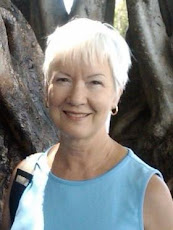

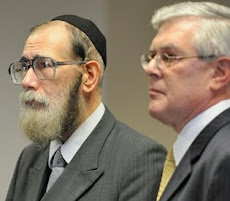

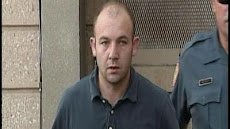









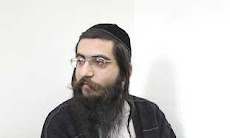





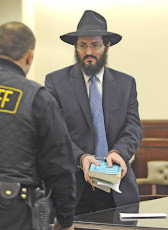














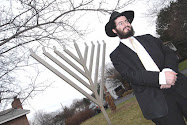




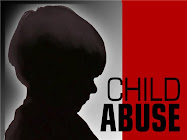













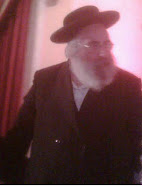



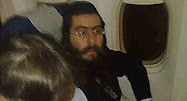




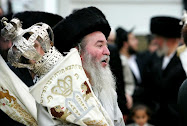


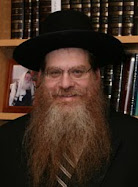












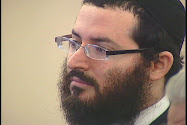
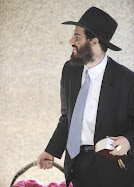
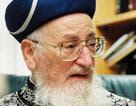









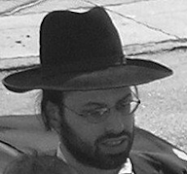

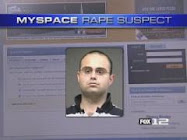









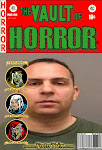











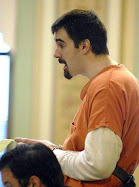


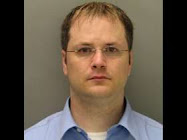


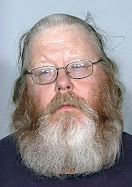

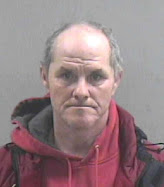
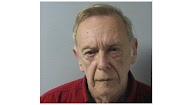
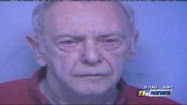













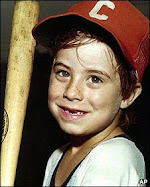

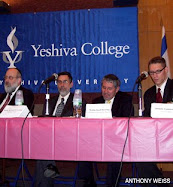

















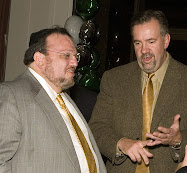
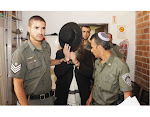






























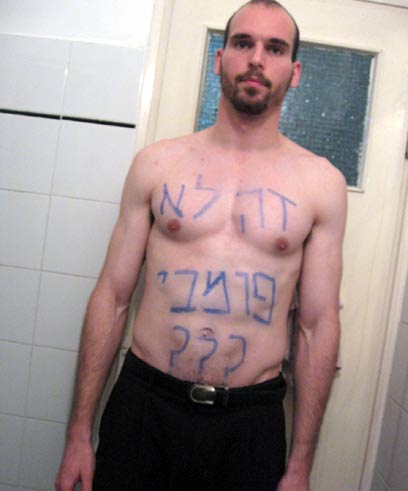
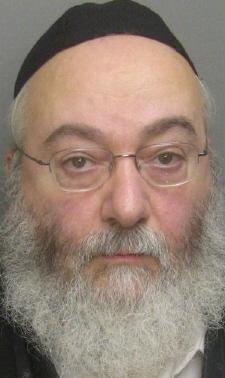












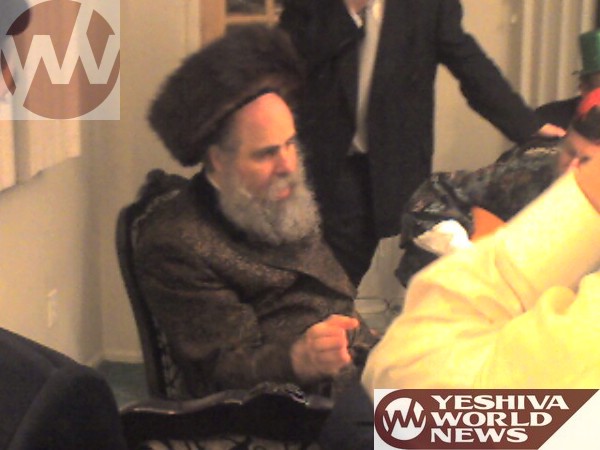






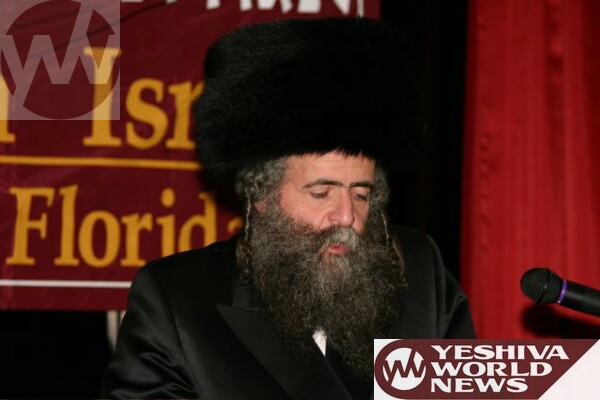


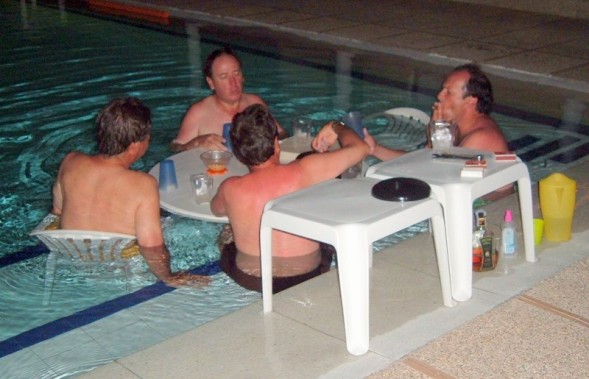

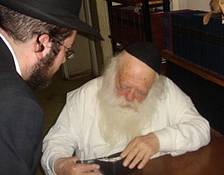

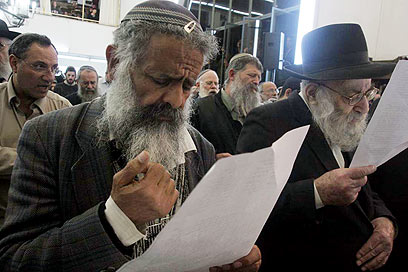
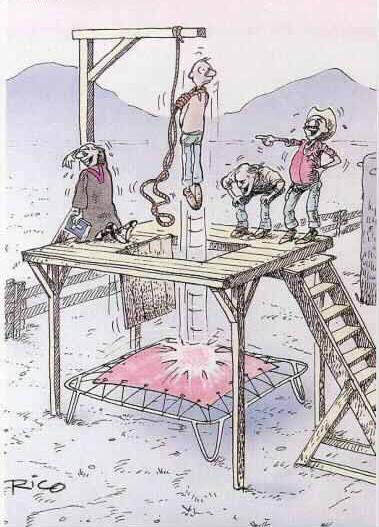



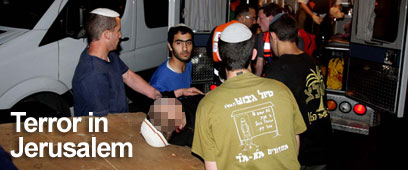
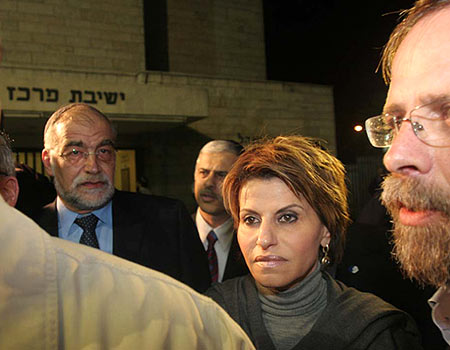
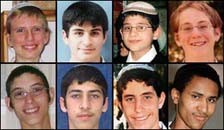
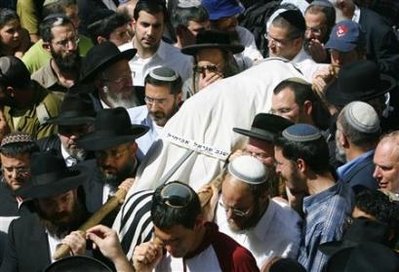
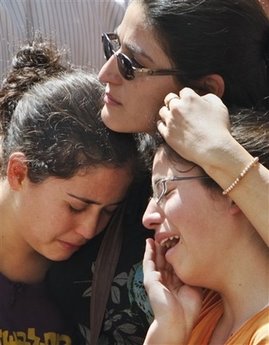
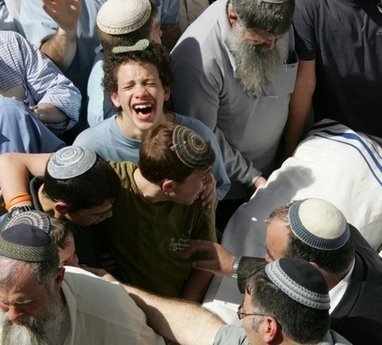
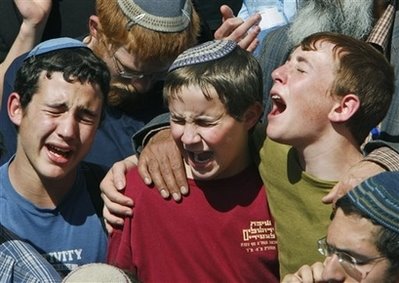











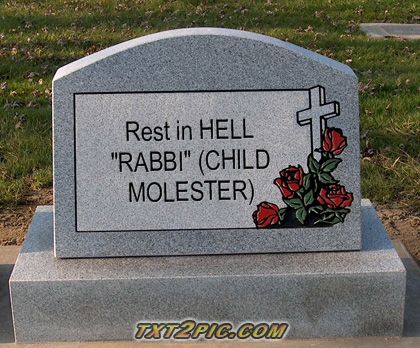








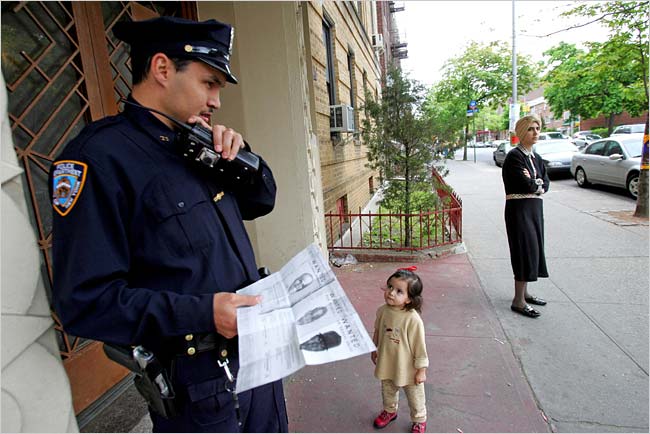















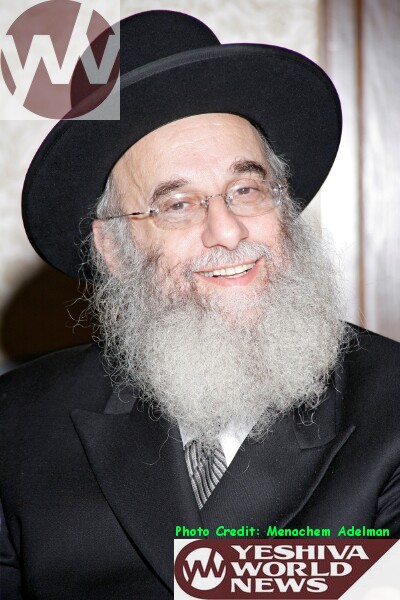


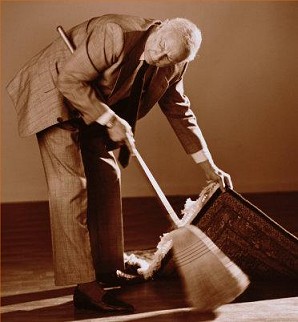


















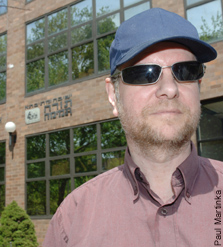


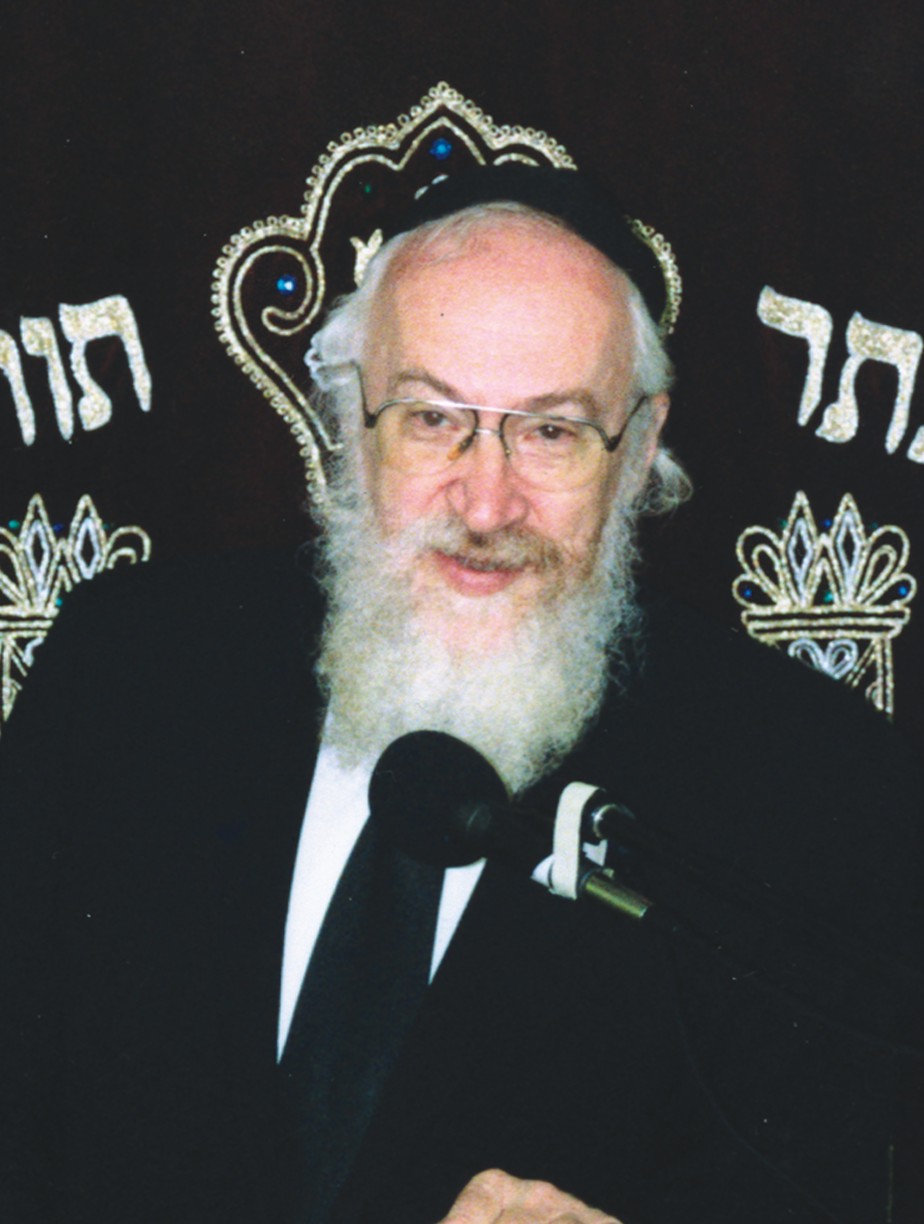










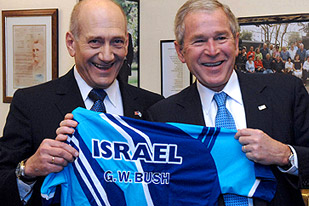



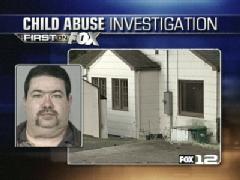
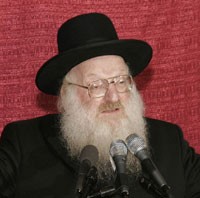

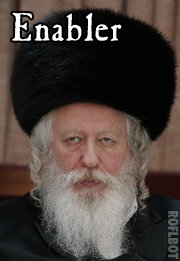



















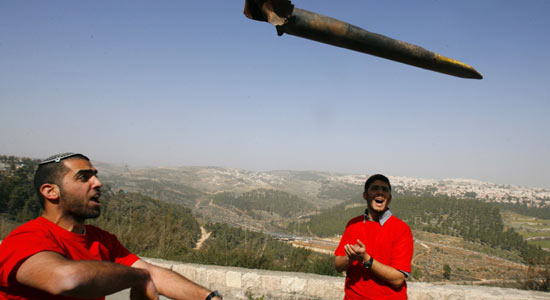
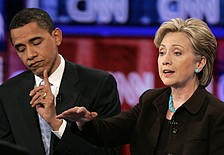












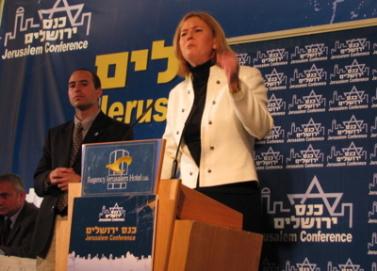



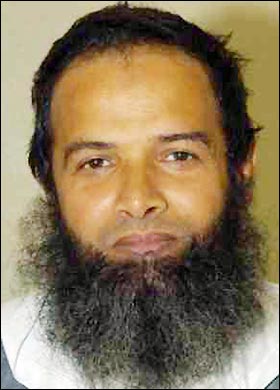


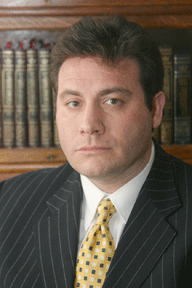

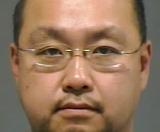
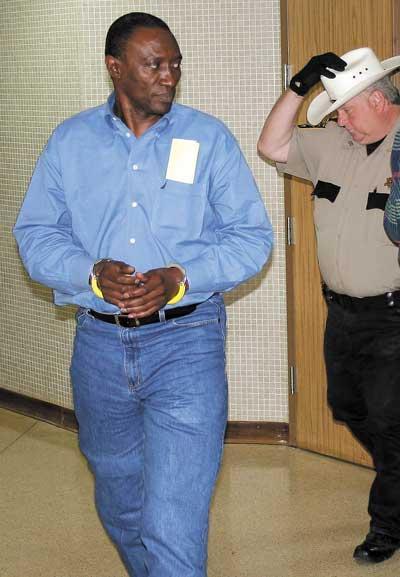

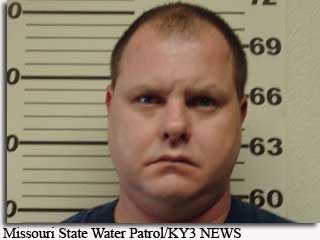



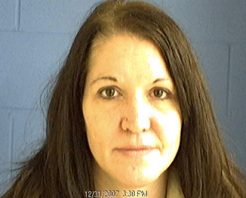


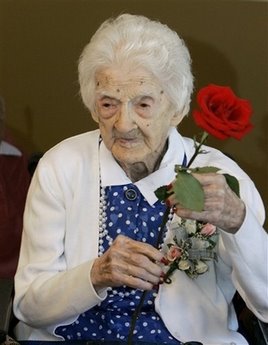

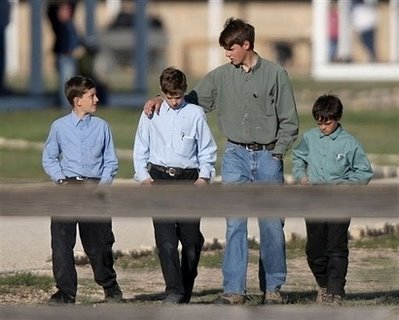



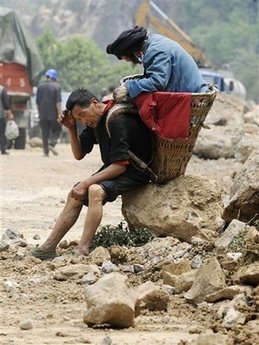





73 comments:
look for our very own rav shlomo mandel mandel to give words of chizuk this sunday at the agudah convention. we feel that just beacause he harbers a child molester has nothing to do with hearing the gadlus of his divrei hisoirerus.
If Hikind had any guts he would turn over the names of these pedophiles now!
I am so delighted that yob is represented by that big shot Barry Slotnick. Did you see the way he handled the Rev. Al Sharpton? It was good. But I gotta tell you that I'm also pretty good at handling things, like the private parts of little boys.
What is the motive for the Forward to side with hiknid?
Nov. 27 (Bloomberg) -- A rabbi and his wife were being held hostage in the Chabad-Lubavitch Center in Mumbai after gunmen attacked the Jewish facility during an assault on the Indian city that left at least 101 people dead and 290 injured.
Several other Israelis were also being held in the building, Menachem Brod, a spokesman in Israel for the Brooklyn-based Hassidic group, said today in a telephone interview.
The captors at the center offered to talk to the Indian government about the possible release of the hostages, the U.K.’s Sky News reported. Details weren’t immediately available.
A woman who worked in the Chabad building, in Mumbai’s Colaba neighborhood, escaped along with the rabbi’s two-year-old son and a cook, Brod said. “She reported that the rabbi and his wife are alive but that they are unconscious,” he said.
Brod said he didn’t know exactly how many Israelis were being held hostage, nor how many gunmen were in the building, one of thousands of centers the organization runs worldwide to promote religious educational outreach to Jews.
He identified the rabbi and his wife as Gavriel and Rivka Holtzberg. He said the rabbi has dual Israeli and American citizenship and that his wife is Israeli.
Israelis at Oberoi
Yigal Palmor, spokesman for the Israeli Foreign Ministry, confirmed that there were Israelis being held hostage at the Chabad center and that there were also Israelis among hostages at the Oberoi Trident hotel complex.
“We don’t know how many and we don’t know what their condition is,” he said in a telephone interview.
Attackers stormed the Oberoi and the Taj Mahal Palace and Tower hotel in Mumbai late yesterday, saying they were targeting Americans and Britons.
Palmor said the Israeli consul in Mumbai was assisting Israelis who wanted to return home and that El Al Israel Airlines Ltd., the country’s biggest carrier, hadn’t changed its flight schedule.
Israeli Tourists
According to the Chabad Web site, the group has 13 centers across India, a favorite destination for many young Israelis who travel there after completing their military service.
“I am from Israel. So this is my life,” said Moshe, 27, explaining that his country’s experience with terrorist attacks is the reason he didn’t plan to cut short his trip to India. Moshe, who declined to give his full name, said in an interview in Colaba that he was in the area to try to get confirmation that an Israeli family was being held hostage.
“Israelis are unfortunately quite accustomed to this type of happening, not to say that they take it in their stride, but it will definitely not deter anyone from visiting India as a tourist,” said Ari Bloch, 40, managing director of Israel-India Ventures Ltd., which facilitates investments in technology ventures between the two countries. He spoke by telephone from Israel.
To contact the reporter on this story: Peter Hirschberg in Jerusalem at phirschberg@bloomberg.net.
Indian police surround Jewish center hit by gunmen
By JENNY BARCHFIELD
http://www.israelnationalnews.com/News/News.aspx/128583
Yishai reiterated his “puzzlement” at the recent Supreme Court ruling ordering the Jews out and allowing the State to evict them by force. “It is very strange that the Court would expel people from their home with no judicial hearing on the purchase itself,” Yishai said. The Court ruled only that because of doubts raised as to the validity of the purchase – the seller later reneged, because of Palestinian Authority threats on his life – the Jews must leave until the matter is decided by a lower court.
“The ruling does not jibe with healthy logic,” Minister Yishai said, “especially when the purchase is documented.” The purchasers have presented written, audio and video proof of their acquisition.
When I was little, a man sexually abused me. He did it many times. He was a friend of the family and he took advantage of me. It wasn't until I was in my late twenties that I was able to tell my parents what happened to me. They were of course shocked. They decided to consult a rav and ask what to do before taking action. I was uncomfortable with that however but thought alright lets see what the rav says. To my shock and horror he was coming up with one excuse after another as to why we (I) should just forget about it and move on. The man has a family.. It was so many years ago.. The embarrassment that this will cause to our community is not worth it.. I was totally taken aback. To make a long story short, the man eventually admitted to my family that he was sorry about what happened and that he knows he was wrong to abuse me. I went to the police and they took my report. Due to all the time that passed since the offense took place there wasn't much they can do. I will live in agony for the rest of my life. I don't think I can heal. That Rav betrayed me. The laws are favorable to perpetrators and as a result no justice is served. I write this now because when I read about Dov Hikind's refusal to hand over the names of molesters, it makes me so disgusted. I really distrust him too, because he wants to create a task force made up of Rabbis. It doesn't sit right. I advise all victims of abuse to speak up right away. The sooner the better. I know it's hard, but the longer you wait, the less likely it is for these molesters to be brought to justice. Also please don't go to your Rav and ask him what to do. What you need to do is go straight to the police who are trained and qualified to do this and arrest the monster who did this to you.
Sara
This truly is gruesome. What a horrific world we live in!
================================
http://www.theaustralian.news.com.au/story/0,25197,24713206-5006790,00.html
Horror of sexual abuse among children
Caroline Overington | November 27, 2008
Article from: The Australian
THE rape of toddlers by other children is commonplace in Aboriginal communities and, in one case, a girl was attacked so violently she has to wear a colostomy bag.
One boy showed pornographic DVDs to other children so they could re-enact the scenes, and another, aged 11, gave a sexually transmitted disease to two preschool girls.
As well, packs of boys aged as young as 10 raped drunk Aboriginal women who had collapsed in the street.
The gruesome details, provided in an Australian Crime Commission report released yesterday, are matched by the insouciance of the mothers, with one saying that as she had to put up with abuse, why shouldn't her daughter. Another said she had been abused 37 years ago, when "Aboriginal law had started breaking down".
The author of the report, Wendy O'Brien, says there is virtually no academic material acknowledging the existence of children sexually abusing other children. Evidence is drawn from testimony to various inquiries into Aboriginal issues and from the courts, where children end up when caught and prosecuted.
Dr O'Brien's report is essentially a review of this material, plus newspaper reporting, with some academic input.
The report says there is an "urgent need for increased studies on young children engaging in problem sexual behaviour" to overcome "what amounts to silence around this issue".
Reports of sexual abuse by children are met with "shock and denial".
Research suggests that young perpetrators have often been abused themselves.
South Australian child welfare expert Freda Briggs is quoted as saying: "When a child abuses others, inquiries should be made as to how the abuser learned what to do. It is possible that the behaviour was learned from personal experience, or from pornography.
"When a female child is involved in sexual behaviour with older boys, it is sometimes found that she imitates the sexual behaviour, having learned it from being abused herself."
Dr O'Brien's report cites a Northern Territory study that concluded that "everything we have learned convinces us that (this is a symptom of) the breakdown of Aboriginal culture and society".
Children are socialised in an environment that accepts sexual and physical violence.
"This acceptance has now been normalised and crossed generations," the review says.
Young girls see abuse as inevitable, and "they simply believe resistance is futile".
The report says animals are also among the victims.
"Each major jurisdictional taskforce or inquiry report into violence indicates some level of concern about this issue," it says.
The recent NSW Aboriginal child sexual assault taskforce reported that sibling sexual abuse was rife.
The NT board of inquiry report into Aboriginal communities identified "sex between children" and "children's exposure to sexual activity" as problems, and said "many sexual offenders were, in fact, children themselves, and some of these offenders were female children".
That inquiry heard of a 12-year-old boy interfering with a three-year-old, a 13-year-old boy interfering with a five-year-old and a 15-year-old interfering with a three-year-old.
In Brisbane, Dr O'Brien's review identified a four-year-old boy raped by two 10-year-old boys; and in central Queensland, a three-year-old was raped by two juvenile males and an adult.
She cites an 11-year-old-boy in Balgo, NSW, forcing two preschool girls into having sex with him, infecting both with disease.
Then there was the gang-rape of a 10-year-old girl at Aurukun, and repeated sexual assault on an 11-year-old boy by a gang of children who spent their days watching pornography and smoking marijuana.
The review quotes Griffith University associate professor Stephen Smallbone as saying this kind of behaviour is "not unexpected in communities where there is an absence of authority".
There are also reports of informal or formal prostitution -- exchanging sex for money or goods, including alcohol.
It quotes a remote-area nurse in the NT as saying children are "vulnerable and desperate and they crave things they do not get at home, such as love, attention and material goods".
MUMBAI: Till Thursday morning, Nariman House and its occupants at Colaba were not exactly well known. But as Mumbaikars watched the night of
horror unfold, little-known Nariman Bhavan was the scene of a raging gunbattle between terrorists and security personnel, thanks to its Jewish occupants.
The building, along with the far better known Taj Palace and Oberoi hotels, found itself under siege. The terrorists took a young Israeli Rabbi Gavriel Holtzberg and his young wife Rivka staying at Nariman Bhavan hostage. Both were reportedly killed. The terrorists, however, spared their two-year old son and a maid.
The building is well known as an address for Chabad — pronounced Habaad — a kind of rendezvous for Israeli tourists visiting Mumbai. Besides being a meeting point, it also serves as a tourist information centre and offers shelter to visiting Israelis.
For conservative Jews, it’s the only place in the vicinity that serves Kosher food. According to sources about six terrorists are still in the building, as the operation to flush them was still ongoing at the time this article was written.
The Israeli embassy in New Delhi refused to furnish details about the number of its citizens trapped inside Chabad House. It said it is waiting for the security operation to end. According to Chabad website, the group has 13 centres across India.
MK Avraham Ravitz, chairman of the Degel Hatorah party, has decided to retire at the end of the current Knesset term after serving 20 years in the Knesset.
Ravitz, 74, announced his decision to leaders of the Lithuanian Ultra-Orthodox community, Rabbi Yosef Shalom Elyashiv and Rabbi Aharon Leib Steinman, clarifying that despite his retirement from parliamentary life he intends to carry on as head of the party and continue his service to the public.
The retirement of Ravitz, one of the most dominant representatives and sharpest speakers of the ultra-orthodox community, is taking place against a fierce internal conflict between a portion of the United Torah Judaism party regarding the Jerusalem electoral system. The clash intensified with Ultra-Orthodox MK Meir Porush losing to secular candidate Nir Barkat in the recent municipal elections.
http://www.fbi.gov/pressrel/pressrel08/topten_112808.htm
FBI's Top Ten News Stories for the Week Ending November 28, 2008
1. Dallas: Holy Land Foundation and Leaders Convicted
The Holy Land Foundation of Relief and Development and five of its leaders were found guilty of illegally funneling at least $12 million to the Palestinian terrorist group, Hamas. Full story
2. Dallas: Korean Arrested in Bribery Conspiracy
Gi-Hwan Jeong, a South Korean businessman, was ordered detained for his alleged role in a $206 million bribery conspiracy. Full story
3. New York: Art Dealer Arrested
Giuseppe Concepcion was charged with engaging in a scheme to defraud his customers by selling fake paintings that he represented to be authentic works of famous artists. Full story
4. New York: Luchese Family Acting Capo and Others Arrested
Anthony Croce, acting Captain in the Luchese Organized Crime Family, and seven others were arrested on gambling and narcotics charges. Full story
5. Miami: Arrests in Sex Trafficking of Immigrant Women
Extensive collaboration among law enforcement agencies resulted in the arrest of four individuals and nine victims were rescued. Full story
6. Newark: Identity Theft Ring Busted
Four individuals who were part of a multi-national identity theft ring were arrested as a result of an ongoing multi-agency law enforcement investigation. Full story (pdf)
7. Oklahoma City: Tribal Officials Indicted
Two former representatives to the Business Committee of the Cheyenne and Arapho Tribes William F. Blind, Jr. and his wife, Vinita H. Sankey, were charged with embezzling tribal funds. Full story
8. Omaha: Agriprocessors and Managers Indicted
Agriprocessors Inc., CEO Sholom Rubashkin and others were indicted on numerous charges including conspiracy to harbor undocumented aliens for profit. Full story
9. Miami: Bayer HealthCare Agrees to Pay $97.5 Million
Bayer HealthCare LLC agreed to pay the United States $97.5 million to settle allegations of paying kickbacks to diabetic suppliers. Full story
10. Boston: Salesman Charged With Impersonating Federal Agent
A young rabbi and his wife who moved from Brooklyn to Mumbai to run a Jewish center in India’s commercial capital were among those killed in a series of coordinated terrorist attacks, the Chabad-Lubavitch organization said on Friday.
In 2003, Rabbi Gavriel Holtzberg and his wife, Rivka, left New York to run the Chabad center known as the Nariman House, where they managed a synagogue and led religious classes and other social and outreach activities at the center, one of about 3,500 outposts around the world run by the Lubavitch Hasidic movement.
“Gabi and Rivky Holtzberg made the ultimate sacrifice,” Rabbi Moshe Kotlarsky, vice chairman of Merkos L’Inyonei Chinuch, the educational arm of Chabad-Lubavitch, said in a statement. “Their selfless love will live on with all the people they touched. We will continue the work they started.”
News reports have said that five people taken hostage at the Nariman House have been confirmed dead.
On Wednesday, the Holtzbergs’ Chabad house became an unlikely target of the terrorist gunmen who unleashed a series of bloody coordinated attacks at locations in and around Mumbai’s commercial center.
Firing grenades and automatic weapons, the men took the Holtzbergs and at least six other people hostage, according to friends of the Holtzbergs. The couple’s 2-year-old son, Moshe, and a cook managed to escape about 12 hours into the siege, the friends said. The boy’s pants were soaked in blood when he emerged. It is not known if the Jewish center was strategically chosen, or if it was an accidental hostage scene. But if the center lacked the size and prominence of the attackers’ other targets, the news of its fate reverberated among Chabad houses in Australia, Argentina, Tunisia, Kazakhstan, Norway and 67 other countries.
But perhaps nowhere was it felt more strongly than in Crown Heights, Brooklyn, the nerve center of the Lubavitch community and the neighborhood where Rabbi Holtzberg grew up. At the group’s world headquarters on Eastern Parkway and Kingston Avenue, men filed into the synagogue to pray for the Holtzbergs’ safe release. In a separate room, women swayed on their knees as they read the Torah. In the offices upstairs, rabbis and friends of the couple manned telephones, staying in contact with a sizable network of volunteers at the house in Mumbai, waiting for news.
The Lubavitchers’ headquarters occupies a wide five-story building that is the tallest on the block. It is the site of an annual conference for the emissaries who run Chabad houses. This year’s conference ended last weekend, but many of the participants stayed behind to spend Thanksgiving with relatives in the area.
On Thursday, they found themselves drawn to the synagogue, even those who said they knew Rabbi Holtzberg only by name. Someone scribbled an English translation of the Hebrew sign affixed to the temple’s doors, bearing the couple’s names. The translation read, in part: “Think positive thoughts and good will come.”
Gavriel and Rivka Holtzberg were born in Israel, though he and his siblings were brought to Crown Heights as children by their parents. The couple married a year before they went to Mumbai, formerly Bombay, to fulfill a role that Rabbi Zaklikowski said fit perfectly with Rabbi Holtzberg’s personality.
“He has a huge heart, always willing to help somebody in need,” the rabbi said. “It’s only natural that he would give himself to the community.”
Rabbi Moshe Kotlarsky, who directed the Chabad emissaries’ conference, said of Rabbi Holtzberg, “He is a very dynamic, energetic individual” who turned Mumbai’s Chabad house into “a home away from home for thousands and thousands of Jews.”
At midafternoon in New York on Wednesday, the first reports of the attacks in Mumbai hit the news, but no one in the Crown Heights Lubavitch community knew exactly where they had occurred — and no one suspected that the Chabad house had been hit. Still, some friends wanted to make sure that Rabbi Holtzberg and his wife and son were all right, so they phoned. There was no answer.
Rabbi Holtzberg’s parents, Noah and Freida, spent most of Thursday holed up in their house in Crown Heights, but left for Israel late in the afternoon. Meanwhile, Rivka Holtzberg’s parents, Rabbi Shimon and Yehudit Rosenberg, who live in Israel, boarded a plane to Mumbai. They were accompanied by a crew from the Israeli relief organization ZAKA, said Dov Maisel, a medic with the group, by telephone from Israel.
“They are on a mission to get their grandson, but they are very, very nervous” about their daughter and son-in-law, Mr. Maisel said. “Some 24 hours have passed, and they have heard nothing.”
Liz Robbins contributed reporting.
Child abuse survivors advocate for legal reform
Originally published November 28, 2008
By Ron Cassie
Ava Miegdzinski endured physical and psychological trauma after being sexually abused as a 4-year-old by a Hebrew school teacher in Providence, R.I.
At 58, Miegdzinski stepped forward publicly for the first time to discuss the repercussions of her abuse, which she said included sterility. She said she intends to lend her voice in support of legislation that would extend Maryland's statute of limitations on lawsuits involving cases of child sexual abuse.
She described her experience during a recent public meeting at the C. Burr Artz Public Library in downtown Frederick.
Miegdzinski said that her sister Sandra is also a victim, and that Sandra was 5 when she was sexually abused by a neighbor.
"The lawyers talked my parents out of filing a lawsuit because they said the other side's attorneys would tear my sister apart," Miegdzinski said. "That makes us both so mad today."
Victims of such abuse have criminal but not civil recourse after their 25th birthday. Studies show that only 10 percent of victims ever report childhood sexual abuse, and most who do wait until they are well into adulthood.
Prosecutors aren't likely to take on cases involving sexual abuse that allegedly took place decades ago, victim advocates said, thus the need for civil remedy.
The local meeting was sponsored by Child Victims Voice of Maryland, a coalition working to abolish the state statute of limitations on lawsuits in cases involving child sexual abuse, and The Awareness Center, a Jewish coalition against sexual abuse and assault.
Similar events aimed at rallying support for legislation already filed by Baltimore state Sen. Delores Kelley, the Civil Actions -- Child Sex Abuse -- Statute of Limitations, were scheduled in Pikesville and in Bowie. Susan O'Brien, an Annapolis consultant and child sexual abuse victim herself, said that more events around the state will be planned before and during the General Assembly session.
"This is a bill that should have bipartisan support," O'Brien said. "This is a child protection measure. Do I want the right to sue the guy who abused me 25 years ago? Yes, but the guy who abused me in 1978 was 23 years old at the time, and he's still out there.
"My son Charlie is 6, I was 8," O'Brien said. "When you start having your own children, you start looking at what you can do to protect them."
The proposed legislation has two components: extending the statute of limitations and providing a two-year window for victims of any age to come forward.
"Education is the key," said Vicki Polin of The Awareness Center. "The simple fact is that people do not come forward until they are 40, 50 and 60 years old, and the statute of limitation needs to be extended."
The typical child sexual predator, Polin said, will molest more than 100 children over the course of a lifetime.
Polin and O'Brien, who led the small gathering, encouraged those in attendance to contact their local PTAs, neighborhood watch organizations and Scout leaders, and talk with those groups about the issue and proposed legislation.
The bill does not provide victims with any special rights, O'Brien said.
"It does not attempt to legally redefine rape, or sexual abuse, or child abuse, or any institutions. Victims still must present the merits of their claim. They still have to go court and present evidence as they would with any other court proceeding."
Although only 2 percent of child abuse victims claim to have been abused by clergy (46 percent claim to have been abused by a family member, the rest by teachers, neighbors and other adults), the Maryland Catholic Conference has played an outsized role in lobbying against expanding the statute of limitations in the past, Polin and O'Brien said.
That concern, plus the Catholic Church's ongoing sexual abuse crisis, brought Charlie Diffenbaugh, a member of St. Ignatius in Urbana, to the meeting in Frederick.
"It's my opinion that the church should stop lobbying to defeat this type of legislation and finally face up to the issue," Diffenbaugh said. "They're spending thousands of dollars of people's money to defeat this, and I think that's a real problem."
http://www.fredericknewspost.com/sections/news/display.htm?StoryID=83271
I disagree. There is no yashrus without inflicting emotional, physical, and sexual abuse. It is all about Chinuch. How is a boy or girl to know right from wrong unless we teach them through tough love.
How is a wife going to know how to dress with tznius if her husband doesn't beat her or burn her clothes.
http://www.buanews.gov.za/news/08/08112610451001
Compiled by the Government Communication and Information System
Date: 26 Nov 2008
Title: Emotional abuse scars deeper
--------------------
It is not just bruises and broken bones which amount to abuse, sometimes the unseen psychological scars of emotional abuse have a much more devastating effect, writes Bathandwa Mbola.
For Sarah van Wyk, it has taken several years and for her to find herself and regain confidence after an emotionally abusive marriage. While the 46-year-old was not physically beaten, the humiliation and desperation she experienced left her with deep emotional wounds.
"I do not have scars to show the world...but today I can proudly say that I am a survivor," she said, adding that it took years to reclaim her identity.
Ms van Wyk has been treated for manic depression and has received treatment at several counselling centres in the Gauteng area.
The mother of two from Eldoraigne in Pretoria said she had found it difficult not to believe the hurtful things that her husband told her daily. He would say she was "useless, worthless, stupid and cheap".
"Half of my life I was surrounded by violence so I assumed that it was normal. The years of psychological abuse from my ex-husband made me feel like I was no one," Ms de Beer explained to BuaNews.
With a good career, what seemed to be a good marriage and two children, she felt like she had got everything a woman could wish for in life, she said recalling the happy times early on in her marriage.
"I cared deeply for my husband and our two daughters and gave them everything. They were my world and I wanted the best for them. But I was thinking very little about myself."
Recalling how the abuse started, Ms van Wyk said her husband who was had previously drunk very little alcohol, began drinking more and more until eventually he was drinking everyday and began coming home late.
At first he blamed his moods on work stress, but as the months passed she realised that the problem was much deeper.
"I started asking him to open up to me but he refused...and that's when the ordeal started."
Her husband began picking on her and complaining about everything in the house from the food she made which he described as not good enough, to the way she wasting money on unnecessary things to the "cheap" manner in which she dressed.
"He constantly told me how stupid and worthless I was and that I was sick in my head. He would hurl the most degrading insults at me," said the tearful woman, adding that it was at that point she decided to rather keep quiet when he was around to stay out of trouble.
She said her culture and values also made her decide against revealing her awful situation at home to friends and family, which she now realises was a betrayal to her community.
The turning point came when her husband decided to burn all her clothes because they were too revealing.
"I came home from work to find out that all my clothes where being burned because they where too inviting to other men. He accused me of sleeping around. From that moment, I decided to break the silence because I knew if I didn't do something soon I was going to be next."
She said it was one of the most difficult decisions in her life and it was made worse because her husband had been a member of the South African Police Service. She applied for a Protection Order and few weeks later, her husband applied for a divorce.
"I had to though. I did it for my daughters, even though it took a few years, for the sake of my daughters. I could see how the situation was starting to affect them."
One of her daughters, 12-year-old Amanda*, is still finding it difficult to come to terms with her experiences and is in therapy to work through her ordeal.
Ms van Wyk said she wanted to tell women who are trapped in abusive situations to stand up and get help.
"My message to other women is to speak out. Get out and get help. You are not alone. Because you live in affluent homes with high fences does not mean we have be keep quite when things go wrong. Break the silence."
The van Wyk's story is not uncommon in South Africa. Thousands of women throughout the country experience abuse of some form in their lives, despite government's progressive agenda which lists gender equity, pervasive domestic and sexual violence as a priority.
Although no definitive statistics exist, estimates for the number of women assaulted of verbally and emotionally abused by their partners in South Africa remain shockingly high.
It has been reported that one out of four South African women experiences violence from an intimate partner, and despite the commitment to women's rights, in reality, women who are battered are often very reluctant to seek help.
Chief Operations Officer at the Department of Social Development, Zane Dangor said cultural beliefs and perceptions are at the root of gender inequalities in many societies.
He said gender-based violence reflects inequalities between men and women and compromises the health, dignity, security and autonomy of its victims.
The extent of violence globally against women and children remains a cause for worry and concern. "Any of these abuses can leave deep psychological scars, damage the health of women and girls, including their reproductive and sexual health, and in some instances result in death," said Mr Dangor recently.
Chairperson of the Commission on Gender Equality, Nomboniso Gasa, said South Africa was still struggling to integrate human rights with women's rights.
"You find that the criminal just system has got to be working properly, people are failed by the system, girl children are failed by the system and we need to tighten that process and ensure that turn-around within reporting, conviction and sentencing is actually much quicker.
"People must be protected and justice seen to be done," the Chairperson said. - BuaNews
* Not her real name
By Rabbi Yosef Blau
It is no longer possible to ignore the tragic reality that sexual, physical and emotional
abuse exists within the Orthodox community. Recent revelations about rabbis and
teachers abusing adolescents, often continuing to abuse for decades, dramatically remind
us that our existing mechanisms are failing to deal with the problem. I am not aware of
any statistics which clarify whether the numbers of offenders is substantial, but even a
small number can traumatize hundreds of victims.
The full measure of the horrendous nature of abuse is not always apparent from a
technical halakhic perspective. Two teenagers touching each other inappropriately are
guilty of the same sin as a forty-year old rabbi touching a thirteen- year old female
student. We intuitively recognize that the rabbi has used his position as an authority
figure to manipulate a vulnerable child, though she is an adult according to halakha. A
pedophile who abuses minors even if he gets their approval is halakhicly a rapist but not
if he does the same with an adolescent boy or girl.
It is even more difficult to pinpoint the sin when dealing with emotional abuse and
manipulation. While one can make similar technical arguments in other areas of halakha,
its significance in this context is its use as cover for the many who do not want to deal
with the full implications of confronting rabbinical abuse. Not wanting to see themselves
as lacking sympathy for victims, people can claim to be concerned about preserving
halkhic standards. How rare it is to have two witnesses who saw the abuse.
Even when the pattern of abuse is clear the question remains how to effectively deal with
the abuser in a way that at least limits his ability to move elsewhere and continue to abuse
new people. Schools fire abusive teachers who then move to another community and
start teaching (and abusing) in the new yeshiva. Going public is seen as causing a chilul
Hashem and going to secular authorities as mesira.
Virtually all poskim agree that if there is danger to future victims then there is no
halakhic issue of mesira but practically the taboo of mesira remains. Victims are
discouraged from coming forward on other grounds as well. It will hurt potential
shidduchim, not only for the victim but for members of his family as well. Compassion
is expressed for the reputations of members of the abuser’s family as well. The
probability that the family members may have suffered abuse themselves and suffer from
being in ongoing contact with the abuser, is not understood.
Taking the accusation to a Beis Din unfortunately is rarely effective. Few rabbis have
any training in recognizing abuse and the rabbinical courts have no investigative arm.
Some abusers are charismatic leaders and have followers who will say whatever they ask
them to say. Perjury to a Beis Din is not punished and in many cases the witness, in
support of his mentor, has no difficulty with distorting what occurred. The cultic element
in the guru’s leadership is hard for us to acknowledge. A rabbi promoting Judaism is
seen as incapable of being a cult leader.
Newspapers, particularly Jewish newspapers are assumed to be anti-Orthodox. Speaking
to them is almost the act of a traitor. Yet at the present time the media has played a
primary role in the increased awareness of this problem and an abuser whose name that
has appeared in the media is unlikely to be hired by a new school or youth movement.
Two recent cases point to differing approaches now being used. In one story from Israel
a commission including a rabbi, a psychologist and a judge evaluated allegations and the
accused was fired from his teaching position. He hired a lawyer and is fighting for
reinstatement. The Israeli media have picked up the story. A recent article in Maariv
broadened the discussion to quote varying views about rabbis counseling married women.
The other case involved allegations that had been investigated twenty years ago and a
resulting agreement that an individual would leave Jewish education, which was not
effectively enforced. After two decades it became difficult to reconstruct what had
occurred. Supporters of the accused spoke freely to the media while victims used
pseudonyms. New allegations surfaced and a major expose appeared in the papers and a
new Beit Din was formed to decide how to deal with the accusations. While no formal
announcement has been made, their apparent decision was to send the case to a religious
court in Israel that will deal with the charges.
Despite growing awareness and concern no consensus has yet emerged. Rabbis are not
trained to recognize abuse nor given an approach to aid them in responding when they
realize that it is occurring. Principals are not equipped to respond to accusations against
teachers in their schools. Rabbinical organizations do not have rules of appropriate
conduct. Accused abusers retain memberships in these organizations without any process
to remove their names.
Our community has not been educated to recognize abuse nor to appreciate the ongoing
trauma of victims. Headlines in newspapers are not effective educational tools. Often
the response is to express anger at the paper and then ignore the abuse. Until the
mentality of the community changes little progress will be made.
Even if a method will be developed to get rabbinical approval for victims to go to the
police much of the problem will remain. Not every manifestation of abuse involves
criminal behavior. “Rabbis” who seduce women as part of outreach or marital therapy
are not guilty of a punishable offence. Proper utilization of secular authorities is a
necessary step but clearly not a total solution.
In Chicago, after there were a number of serious incidents, a special Beit Din, whose
members are respected across the Orthodox spectrum, was established to deal with
accusations of abuse. Similar rabbinical courts in other major cities, whose judges would
be trained to recognize abuse and would have appropriate mental health professionals as
consultants, should be introduced. Creating special rabbinical courts is a powerful
statement that a serious problem needs to be addressed.
Nefesh professionals have a critical role to play in educating the Orthodox community,
in treating and supporting victims and in serving as consultants for schools and
organizations. Only people who are trained can lead a systematic campaign explaining
the nature of abuse and the need to confront it openly. Stigma has to be removed from
victims. Invariably when the identity of an abuser is revealed the response of far too
many is “We have known that for years.” Enabling abusers to continue, covering their
crimes to protect the image of the community, contribute to innocents being traumatized.
Judith Herman in her book on trauma points out that both the abuser and the victims turn
to others for support. The victim needs action while the abuser only asks for our silence.
It is time to stop the silence. The true chilul Hashem is that we allow victims to continue
to suffer in order to preserve our community’s image.
http://www.theyeshivaworld.com/article.php?p=25909
Upcoming Agudas Yisroel Convention: Timely Theme, Bittersweet Change of Guard
November 13, 2008
ag.jpg(PHOTO LINK AT END OF ARTICLE) The poignant convention theme of this year’s Agudas Yisroel national convention– “Ve’emunoscho Baleilos: Maintaining Simchas Hachayim and Emunah in Challenging Times” – will be addressed at the gathering’s Thursday evening plenary session, which will be open to the public.
The theme – particularly timely in light of political, social and economic challenges facing Klal Yisroel, and the attendant strains and stresses –will be addressed by Rabbi Yissochar Frand, Rosh Yeshiva, Yeshivas Ner Yisroel, Baltimore; and Rabbi Noach Isaac Oelbaum, Rav, Khal Nachlas Yitzchok, Queens.
Opening the session will be Rabbi Yosef Harari Raful, Rosh Hayeshiva, Yeshiva Ateret Torah, who will offer greetings from the Nesius. A message to the gathering will also be delivered by Rabbi Gedaliah Weinberger, Agudas Yisroel’s chairman of the board. The session will be chaired by convention co-chairman, Tzvi Rosen, of Lakewood
Late Thursday night, after the plenary session, a presentation on “How to Teach the True Torah Perspective on Emunah to the ‘NYF’ (the NotYet Frum) as well as the ‘FFH’ (the Frum From Habit)” will feature Rabbi Ben-Tzion Shaeffer, founder, “The Shmuz”; and Rabbi Chanan (Antony) Gordon, of Los Angeles, who will serve as chairman.
This year’s convention will be graced by the presence and words of the Boyaner Rebbe, the convention’s special guest from Eretz Yisroel. The Rebbe’s zaide, the previous Boyaner Rebbe, zt”l, was one of the key members of the Moetzes Gedolei HaTorah and a regular participant in Agudas Yisroel conventions decades ago; the current Rebbe will be continuing in that masores avos through his participation in this year’s convention. The Rebbe will conduct a tish on Leil Shabbos at the convention, and also address the Motzoei Shabbos Keynote Melaveh Malka.
The Melaveh Malka will be a bittersweet time, as it will serve as a seudas preida in honor of and tribute to Agudath Israel’s leader Rabbi Shmuel Bloom, who is planning to retire at year’s end (much to the sadness of Agudas Yisroel’s appreciative staff) – and, after an address from Rabbi Bloom, the inaugural address of his successor, Rabbi Chaim Dovid Zwiebel (the cheer to counter the sadness).
The Melaveh Malka will also include a siyum Mishnayos l’zeicher nishmas Rabbi Boruch Borchardt z”l, Agudas Yisroel’s indefatigable executive director for over fifty years, whose activities on behalf of Agudath Israel over those decades were many and varied; in many ways he was the glue that kept Agudas Yisroel together and his loss is still keenly felt by all who knew and loved him.
Greetings from the Moetzes Gedolei HaTorah will be extended by Rabbi Avrohom Chaim Levin, Rosh HaYeshiva, Telshe Yeshiva, Chicago; and then an address will be delivered by the Rosh Agudas Yisroel: Rabbi Yaakov Perlow, the Novominsker Rebbe.
The session will also be greeted by someone well known and appreciated by all who care about Agudas Yisroel: Jacob (Yaty) Weinreb, who will serve as this year’s convention chairman.
The convention, the organization’s 86th, will be held at the Stamford Hilton in Stamford, Connecticut, from Thursday through Sunday, November 27 -30.
"What is the motive for the Forward to side with hiknid?"
They probably have an agenda. Could be Hikind has influence over them, something which cannot be said about the Rubashkin scandal and the Forwards coverage of it.
We see that The Jewish Press, who has refrained from criticizing Hikind (who they like) being very aggressive when defending the Tendler's and Rubashkin's of the world. The JP barely touched the Kolko issue (if at all). Yated and Hamodia also not. Media are bias to their cause; just ask the New York Times; one of the most leftist Anti-Israel and And Anti-Jewish papers.
"The convention, the organization’s 86th, will be held at the Stamford Hilton in Stamford, Connecticut, from Thursday through Sunday, November 27 -30."
Take for example The Yeshiva World reporting. It is filled with kissing up to "gedolim" of our generation. Nice. But what about when Isaac Hersh was being brutalized at Tranquility Bay; where was YWN then? Where was the Kolko stuff? None that can be found. You know why? Because Yeshiva World is in bed with the two-faced thugs who call themselves Rabbis.
Pacific Grove rabbi remembers cousin slain by terrorists in Mumbai
Larry Parsons - medianews
Rabbi Dovid Holtzberg watched the news the past two days, hoping to see his cousin burst unharmed from a Jewish center besieged by terrorists in Mumbai, India.
But that hope was dashed as Holtzberg, 31, director of the Chabad of Monterey, learned Friday that his cousin, Rabbi Gavriel Noach Holtzberg, and his wife, Rivka, were among the seven found dead after Indian commandos stormed the Jewish center.
"It's not an easy day," Holtzberg said as he walked up the gray-and-yellow steps at the Chabad center on David Avenue in Pacific Grove.
Earlier in the day, he said his eyes had filled with tears when he saw his cousin's toddler son -- who survived the attack that left his parents dead -- clutching his maternal grandmother on television.
Holtzberg said his youngest child has the same name -- Moshe, after one of the cousins' grandfathers -- as the youngster who was smuggled out of the besieged Jewish center.
The rabbi said he'd been wrestling for 48 sleepless hours with first the uncertainty, then the awful news about his cousin.
They were very close. They grew up together in New York and were study mates in school for a year. His cousin was three years younger, the rabbi said.
Only last week, Holtzberg said, they had arranged to be online friends on their Facebook pages. They communicated often, but it had been a year since the cousins were together.
"It's about a double loss
Advertisement
Quantcast
-- a cousin and a colleague," Holtzberg said.
Both men were leaders of a Chabad center, two of 2,500 established worldwide as Jewish outreach centers by the Chabad-Lubavitch movement of Orthodox Jews.
News of the attacks reverberated in Santa Cruz, where there are two Chabad houses.
Rabbi Yochanan Friedman of Chabad by the Sea said he was "shocked and deeply hurt by the brutal attacks."
At the Chabad Student Center, a house of prayer for orthodox Jews that also serves as a community center for other Jews, mainly UC Santa Cruz students, Rabbi Shlomo Chein was fielding phone calls all day Friday. His inbox has been flooded with e-mails from students and professors who are out of town for the holiday weekend.
"Our biggest task right now is to offer comfort and support to the survivors, and take action in memory of the victims," said Chein, who attended rabbinical school in Brooklyn with Gavriel Holtzberg.
In a national conference call with hundreds of rabbis Friday, Chabad leaders recalled historical suffering among Jews dating to ancient Egypt, Chein said: "We learned that the more Jews are oppressed, the stronger the Jewish people become, the more we fight back with love."
The Santa Cruz rabbis called on women and girls to light a candle before Friday night services to honor the souls of the victims.
Holtzberg planned to tell his congregants to remember his cousin by recommitting themselves to do good deeds and perform good acts.
Holtzberg said his cousin's center in Mumbai primarily served tourists, including many young Israelis for whom India is a popular vacation spot after they complete the rigors of their mandatory military service.
"He said it was a great location, very busy," he said. "He was doing it to help people."
Holtzberg said his cousin wouldn't want people to wallow in grief or succumb to anger. He said he can see his cousin in his mind and the young rabbi's face is smiling.
"He wouldn't want us to be down. He would say, 'Forget it,' and tell us, 'Go out and get stronger,'" he said. "Just the opposite of those senseless terrorists. They want to destroy. We need to make the world a better place."
He said that sentiment is particularly appropriate in this season of Hanukkah, which is celebrated by the lighting of candles in a special menorah.
"The whole purpose is to bring light into the world," he said, "and push back the dark."
Holtzberg said his spirits have been lifted by sympathy e-mails and calls from the local community.Next week, he said, he hopes to go to Israel for his cousin's funeral.
Sentinel correspondent Roger Sideman contributed to this story.
"The fact that the attack took place at the Chabad House is the clearest sign that the attack was directed against Jews and Israelis," Foreign Minister Tzipi Livni said Friday.
Israel's defense minister, Ehud Barak, wondered publicly if Indian security forces performed as competently as Israel, with its vaunted military, might have hoped.
The gunmen entered the Jewish center Wednesday night. But Indian commandos, some rappelling onto the roof by ropes from a helicopter, did not storm it until early Friday.
Barak acknowledged the complexity of ending multiple, simultaneous attacks, but said Indian forces were not on par with elite Israeli units.
"I'm not sure it had to last three days, but that's what happened," he said Friday night.
I think it should be up to the person hearing about the abuse to make a decision of report or not to report.
http://www.stltoday.com/stltoday/news/stories.nsf/education/story/EBEA86C8C54698DE86257510001BC2DC?OpenDocument
Failure to report sex abuse charge ends St. Louis principal's career
By Steve Giegerich
ST. LOUIS POST-DISPATCH
Sunday, Nov. 30 2008
With nearly four decades of service in the St. Louis Public Schools drawing to
a close, Richard "Rick" Sirna still felt the tug of his "calling."
Sirna, 60, figured he had two good years of remaining service to the city
schools. And once his longtime tenure as the principal of Gateway Elementary
ended, he planned to wind down his career at a less stressful county district.
Instead, Sirna's career flamed out with a three-day trial, a guilty verdict, a
stern admonishment from a judge and an abrupt end to his career in the St.
Louis schools.
It all came down to his decision not to make a phone call.
In the view of the city schools, authorities and the jury that convicted him,
the former Gateway Elementary principal is a law breaker.
His crime: failing to immediately report the allegations of a 10-year-old
Gateway student who said she was sexually assaulted by a computer instructor in
a school storage area.
Because he did not call a state child abuse hot line as soon as he heard the
allegations, Sirna was found by a jury to have violated the state's mandatory
reporting law. That statute, which is rarely prosecuted, requires educators,
medical personnel and others responsible for the welfare of children to notify
the state of suspected cases of physical or sexual abuse.
Prosecutors contend that the law is clear: "If there is any suspicion that a
child has been molested, you report it," said Philippa Barrett, an assistant
city attorney who prosecuted Sirna.
Barrett and others say there are no shades of gray in the law.
But Sirna and those who support him say the issue isn't so simple. They
maintain he's paying the price for an inexact statute that fails to clearly
state on what terms hot line calls must be made.
Sirna, in a recent interview with the Post-Dipatch, contended that his case
could have a chilling effect on other principals, who may call in even
incidents in which abuse is not a factor.
"If I were (still) a principal," he said, "I'd be hot lining everything."
TRYING TO VERIFY
Professionally and financially, Sirna has paid handsomely for his convictions.
He says his legal fees are in excess of $50,000.
A product of the St. Louis schools, Sirna returned to the system after college.
He landed in a trajectory that took him from classroom teacher to building
principal, with a brief detour as an administrator in the district's downtown
headquarters.
Former Gateway assistant principal Marilyn Bailey said Sirna's influence
extended across the district. "I'll bet 80 percent of the principals (in the
district) asked him for assistance," she said.
Throughout his tenure in St. Louis, Sirna said, there were plenty of
opportunities to move to better-paying jobs outside the city. But he stayed
put. "This was always the best place for me, because this is where I was
needed," he said.
Sirna says that in the course of 37 years as a teacher and principal, he
contacted the emergency abuse hot line more times than he can recall. And he
says that in every instance he attempted to verify the facts before picking up
the telephone.
His conviction comes down to a decision to wait on calling as he tried to
determine if a student should be believed.
"I had no reason to believe it, but I had no reason to disbelieve it either,"
he said. "I didn't know what happened."
The girl told him on Nov. 6, 2007, that Gateway computer instructor John Bender
had touched her inappropriately four days before in a school storage room.
Sirna says he based his decision to delay on several factors, including the
fact that staff members had complained about the girl's behavior in the past.
But of even more concern, Sirna said, was an incident, about six months
earlier, in which the same student had made a similar accusation against a
classmate. But that classmate was seated in an assistant principal's office
when the assault allegedly occurred.
Also, the girl told Sirna that she'd reported the episode with Bender to her
mother after returning home from school the previous Friday. Three days later,
on Monday, she was back in class. The child then waited almost another full
school day, on Tuesday, before approaching Sirna.
Why, the principal wondered, had almost four days passed before the child
brought the allegation to his attention?
The earlier accusation weighing heavily, Sirna said, he walked the child
through the sequence of events. She stuck to her story.
Still, believing there were "lots of questions and no answers," Sirna said, he
summoned the girl's mother to the school.
It was approaching 5 p.m. when the conversation with the mother ended; any
potential witnesses were already gone for the day.
Sirna departed, too, planning to pick up the inquiry where he left off the next
morning. By Wednesday afternoon, he thought, he might have enough information
to determine whether the accusation merited a hot line call.
He never got the opportunity.
The St. Louis Police Department, acting on a complaint from the mother — who'd
gone to authorities after leaving the school — made the call at approximately 6
p.m. that evening.
"Our understanding is that the mother was frustrated because she felt nobody
was listening to her," said Barrett. "That may not be the way (Sirna) perceived
the situation. I think our perception is different."
The girl's parents did not respond to a message the Post-Dispatch left at the
family address.
Sirna said police rejected his offer to call the hot line during a telephone
conversation informing him of the mother's complaint. He resumed his own
investigation, as planned, on Wednesday.
It was then Sirna learned that the girl's mother had told a teacher's aide in
September 2007 that Bender had patted her daughter on the head and referred to
the child as "sweetheart."
Had he been aware of that fact, Sirna said, he probably would have called the
hot line the day the girl complained to him.
Still, Sirna believes that he had the latitude to examine extenuating
circumstances before contacting state officials. He points to the state law's
standard of "a reasonable cause to suspect that a child has been subjected to
abuse or neglect."
He argues that he had justifiable reason to wait before calling the hot line.
The jury that convicted him this past September concluded otherwise.
He was found guilty of the misdemeanor crime of failing to notify the
Children's Division of the Missouri Department of Social Services.
St. Louis Circuit Court Judge Barbara Peebles suspended jail time. She also set
aside the educator's conviction once he meets the terms of a two-year
probationary period.
Prosecutors say the details of the alleged abuse and whether the computer
instructor truly assaulted the student is immaterial. In fact, the criminal
case for that alleged abuse won't be heard in court for months.
Those who support the strictest interpretation of the law say Sirna was
responsible for calling the hot line whether he questioned the abuse claims or
not.
In declaring Sirna guilty, the jury based its decision, in part, on the
testimony of the girl, who recounted for the court the abuse allegations that
she described to the principal.
DEBATE OVER STATUTE
The investigation into the charges that roiled Gateway Elementary continued for
nearly six months. Bender, 61, and an educator for 37 years, was suspended
immediately. Sirna stayed on the job.
In late April, city prosecutors charged Bender with first-degree statutory
sodomy and first-degree molestation. He was released after posting bond.
Bender's case is proceeding toward trial despite the sworn deposition testimony
by the state investigator assigned to the case by Department of Social
Services. The investigator determined that the accuser's allegations were
"unsubstantiated."
Prosecutors, however, sometimes disregard the initial findings into sexual
abuse allegations in deference to further investigation by police and other
experts.
Officials say they know of only a few cases in which a teacher or school
administrator has been prosecuted in Missouri for not reaching out about an
abuse allegation.
By speaking openly about the circumstances, Sirna and others have moved the
debate from the halls of justice to the court of public opinion.
Barrett, the chief misdemeanor officer, says the case raised red flags about
Sirna's motive for delaying the hot line call.
"One thing that hit us particularly hard is if the defendant would have called
right away if (Bender) had not been his friend," she said. "If the accused had
been a neighbor or someone else he didn't know, would he have made the call
right away? Does the law allow someone to make exception if someone is your
friend?"
Sirna denies he and Bender were close.
He holds the view that if a mandatory reporter is prohibited from factoring
"reasonable cause" into the decision to call the hot line, then legislation is
needed to "take out those words, remove them" from the statute.
On that point, Rep. Jane Cunningham, R-Chesterfield, now headed to the state
Senate, agrees with the former educator.
She suggests that a portion of the child protection legislation she is
sponsoring be expanded to require teachers and administrators to call the hot
line first and ask questions later.
"If you're a mandatory reporter, you can still do your due diligence," she
said. "But call it in first."
At Sirna's sentencing, Peebles supported Cunningham's approach. "You
second-guess kids in a playground fight or when something happens in the
cafeteria," she told Sirna. "But you certainly cannot second-guess them when
they come to you with allegations of abuse."
Penney Rector, the staff attorney for the Missouri Association of Elementary
School Principals, sees some flaws in Cunningham's proposal.
Automatic disclosure, without even a cursory review, she fears, "will bog down
the system" and divert authorities from investigating legitimate complaints.
Despite safeguards that unsubstantiated claims "will be placed in a closed
record," Rector still fears that false accusations could smudge the reputation
of a teacher or administrator.
Rector also believes it's easy to second-guess an administrator's actions after
the fact.
"It is easy for someone to come in and say, 'You should have seen this and this
and this,'" she said. "But at the time, you have to go on the information
available and be true to the fact."
In the strictest sense, Sirna's interpretation of the law didn't cost him his
career.
After his suspension last spring, Sirna, like Bender before him, proceeded with
a planned retirement. The district, Sirna said, terminated him shortly after he
informed administrators of the retirement decision.
Today, Sirna's plan for a second education life beyond the St. Louis Public
Schools has all but evaporated.
Because he was convicted of a misdemeanor — and not a felony — his teaching and
administrative certificates are still valid. Realistically, though, he doubts
any district will want him.
"I'm going to find work in another field," he said. "But, to be quite honest,
I'm not really sure what old principals do."
sgiegerich@post-dispatch.com | 314-340-8172
If you enjoy reading about interesting news, you might like the 3 O'Clock Stir from
STLtoday.com. Sign up and you'll receive an email with unique stories of the day,
every Monday-Friday, at no charge.
Sign up at http://newsletters.stltoday.com
Agriprocessors, the failing giant of the kosher food industry, is beginning to disintegrate.
Joseph Sarachek, a court-appointed bankruptcy trustee currently in charge of the Agriprocessors plant in Postville, is seeking to make the company more attractive to potential buyers. Sarachek told residents there that he plans to reopen the facility’s poultry production lines as early as next week. Other kosher food producers are strategically positioning themselves to buy the company’s operations.
The Postville plant, which has not been at full operation since a May 12 immigration raid, was once the nation’s largest supplier of kosher meat products. Placing the plant back in production is important to those who have an interest in selling the operation. Obviously, a plant that is up and running with a trained and loyal work force is more appealing than one that is defunct.
Sarachek outlined his plans with civic and community leaders prior to the Thanksgiving holiday. He said he would begin by opening only the poultry production line, but beef production could also be in the plant’s future. Sarachek was hopeful that the bankruptcy judge will approve the move. He indicated that First Bank, a creditor owed $35 million by Agriprocessors, was in favor of the move.
Bernard Feldman, a New York attorney who was named this September as the company’s chief executive, told the New York court hearing the Chapter 11 bankruptcy case that discussions with possible buyers are under way. Feldman said he hopes the plant will have new ownership in the near future.
Sarachek told The Des Moines Register that Agriprocessors owes more than $500,000 in back pay to workers, and that he plans to begin repaying those debts to the 170 workers he will re-hire to work at the plant next week.
Former chief executive Sholom M. Rubashkin remains behind bars, awaiting trial on a litany of charges that include multimillion-dollar bank fraud, document falsification and immigration-related charges. At least seven other members of plant management, as well as the corporate entity itself, are also either facing charges or have pleaded guity to charges.
The bankruptcy filed by Agriprocessors owner Abraham Aaron Rubashkin on Nov. 4 continues to work its way through the court in New York. Several creditors, including the Iowa labor commissioner, have requested the case be moved to Iowa. A judge is expected to rule on the change of venue within the next two weeks.
Competitors have already positioned themselves into the void created during Agriprocessors’ legal woes.
Empire Kosher Poultry announced that it would “significantly expand production” of kosher chicken on Nov. 24, increasing its output by 50 percent. The company, while obviously hoping to grab the market share vacated by Agriprocessors, said in a press release that it hoped the increase would “allay any fear of a widespread kosher poultry shortage.” It was the second increase in production for Empire during 2008.
Greg Rosenbaum, chairman and chief executive of Empire, made note not only of the cooperation of kosher certifying agencies in announcing the production increase, but made a special point of praising the United Food and Commercial Workers Union. The praise came on the heels of the U.S. Supreme Court denial to hear a 2005 case involving Agriprocessors’ refusal to bargain with workers at its Brooklyn distribution facility who voted to join UFCW. Agriprocessors had unsuccessfully argued to the National Labor Relations Board and a U.S. Court of Appeals that since many of those who voted to unionize were undocumented workers, it didn’t have to honor the decision.
SEXUAL ABUSE IN SOCIAL CONTEXT:
CATHOLIC CLERGY AND OTHER PROFESSIONALS
Special Report
by
Catholic League for Religious and Civil Rights
February 2004
PREFACE
The purpose of this special report is to put the recent scandal in the Catholic Church in perspective. It does not seek to exculpate anyone who had anything to do with priestly sexual misconduct, but it does seek to challenge those who continue to treat this issue in isolation. Indeed, to discuss the incidence of sexual abuse committed by Roman Catholic priests without reference to the level of offense found among the clergy of other religions, or to that of other professionals, is grossly unfair.
Specifically, this report was prepared to guide the discussion that will inevitably follow two major studies that will be issued on February 27. One of them, a national study on the extent of sexual abuse of minors by priests since 1950, will be released by John Jay College of Criminal Justice in New York City. The other is a study of the causes and consequences of the abuse crisis; it will be released by the National Review Board that was established by the United States Conference of Catholic Bishops. Both studies were done at the request of the U.S. bishops.
It is the belief of the Catholic League that no meaningful conversation can take place on this issue without having some baseline data regarding the incidence of abuse that occurs outside the Catholic Church. That was the sole intent of this special report, and if it contributes to that end, then it will have been a success.
William A. Donohue, Ph.D.
President
OVERALL DATA
The National Child Abuse and Neglect Data Systems was developed by the Children’s Bureau of the U.S. Department of Human Services in partnership with the States to collect annual statistics on child maltreatment from State child protective services agencies. For the year 2001, it was found that approximately 903,000 children were victims of child maltreatment, 10 percent of whom (or 90,000) were sexually abused. It also found that 59 percent of the perpetrators of child abuse or neglect were women and 41 percent were men.[i]
In 2001, clinical child psychologist Wade F. Horn reported on the work of researchers at Johns Hopkins University School of Public Health. The researchers found that nearly 20 percent of low-income women, recruited through family planning, obstetrical or gynecological clinics, had experienced child sexual abuse.
Horn summarized the researchers’ findings on poor women as follows: “Family friends and acquaintances compose the largest group of perpetrators (28 percent), followed by such relatives as uncles and cousins (18 percent), stepfathers (12 percent), male siblings (10 percent), biological fathers (10 percent), boyfriends of the child’s mother (9 percent), grandfathers and stepgrandfathers (7 percent), and strangers (4 percent).” Horn was struck by the fact that 10 percent were biological fathers and only 4 percent were strangers. “Which means,” he said, “86 percent of the perpetrators were known to the family, but were someone other than the child’s father.”[ii]
According to Dr. Garth A. Rattray, about the same incidence of abuse occurs among all the socio-economic classes. For example, he reports that “about 85 percent of the offenders [of child sexual abuse] are family members, babysitters, neighbors, family friends or relatives. About one in six child molesters are other children.” Unlike the first study cited, Rattray reports that most of the offenders are male.[iii]
It is obvious that children are much more likely to be sexually abused by family members and friends than by anyone else. This suggests that if preventative measures are to work, they must begin in the home, and not someplace else.
PRIESTS
According to a survey by the Washington Post, over the last four decades, less than 1.5 percent of the estimated 60,000 or more men who have served in the Catholic clergy have been accused of child sexual abuse.[iv] According to a survey by the New York Times, 1.8 percent of all priests ordained from 1950 to 2001 have been accused of child sexual abuse.[v] Thomas Kane, author of Priests are People Too, estimates that between 1 and 1.5 percent of priests have had charges made against them.[vi] Of contemporary priests, the Associated Press found that approximately two-thirds of 1 percent of priests have charges pending against them.[vii]
Almost all the priests who abuse children are homosexuals. Dr. Thomas Plante, a psychologist at Santa Clara University, found that “80 to 90% of all priests who in fact abuse minors have sexually engaged with adolescent boys, not prepubescent children. Thus, the teenager is more at risk than the young altar boy or girls of any age.”[viii]
The situation in Boston, the epicenter of the scandal, is even worse. According to the Boston Globe, “Of the clergy sex abuse cases referred to prosecutors in Eastern Massachusetts, more than 90 percent involve male victims. And the most prominent Boston lawyers for alleged victims of clergy sexual abuse have said that about 95 percent of their clients are male.”[ix]
In a database analysis of reports on more than 1,200 alleged victims of priests identified by USA Today, 85 percent were males.[x] In another study by USA Today, it was determined that of the 234 priests who have been accused of sexual abuse of a minor while serving in the nation’s 10 largest dioceses and archdioceses, 91 percent of their victims were males.[xi]
Much has been made of a survey done by the Dallas Morning News which claims that two-thirds of the nation’s bishops have allowed priests accused of sexual abuse to continue working. But the problem with the survey is its definition of abuse—it includes everything from “ignoring warnings about suspicious behavior” to “criminal convictions.”[xii] Thus, the survey is of limited utility.
MINISTERS
The data on the Protestant clergy tend to focus on sexual abuse in general, not on sexual abuse of children. Thus, strict comparisons cannot always be made. But there are some comparative data available on the subject of child sexual molestation, and what has been reported is quite revealing.
In a 1984 survey, 38.6 percent of ministers reported sexual contact with a church member, and 76 percent knew of another minister who had had sexual intercourse with a parishioner.[xiii] In the same year, a Fuller Seminary survey of 1,200 ministers found that 20 percent of theologically “conservative” pastors admitted to some sexual contact outside of marriage with a church member. The figure jumped to over 40 percent for “moderates”; 50 percent of “liberal” pastors confessed to similar behavior.[xiv]
In 1990, in a study by the Park Ridge Center for the Study of Health, Faith and Ethics in Chicago, it was learned that 10 percent of ministers said they had had an affair with a parishioner and about 25 percent admitted some sexual contact with a parishioner.[xv] Two years later, a survey by Leadership magazine found that 37 percent of ministers confessed to having been involved in “inappropriate sexual behavior” with a parishioner.[xvi]
In a 1993 survey by the Journal of Pastoral Care, 14 percent of Southern Baptist ministers said they had engaged in “inappropriate sexual behavior,” and 70 percent said they knew a minister who had had such contact with a parishioner.[xvii] Joe E. Trull is co-author of the 1993 book, Ministerial Ethics, and he found that “from 30 to 35 percent of ministers of all denominations admit to having sexual relationships—from inappropriate touching to sexual intercourse—outside of marriage.”[xviii]
According to a 2000 report to the Baptist General Convention in Texas, “The incidence of sexual abuse by clergy has reached ‘horrific proportions.’” It noted that in studies done in the 1980s, 12 percent of ministers had “engaged in sexual intercourse with members” and nearly 40 percent had “acknowledged sexually inappropriate behavior.” The report concluded that “The disturbing aspect of all research is that the rate of incidence for clergy exceeds the client-professional rate for physicians and psychologists.”[xix] Regarding pornography and sexual addiction, a national survey disclosed that about 20 percent of all ministers are involved in the behavior.[xx]
In the spring of 2002, when the sexual abuse scandal in the Catholic Church was receiving unprecedented attention, the Christian Science Monitor reported on the results of national surveys by Christian Ministry Resources. The conclusion: “Despite headlines focusing on the priest pedophile problem in the Roman Catholic Church, most American churches being hit with child sexual-abuse allegations are Protestant, and most of the alleged abusers are not clergy or staff, but church volunteers.”[xxi]
Finally, in the authoritative work by Penn State professor Philip Jenkins, Pedophiles and Priests, it was determined that between .2 and 1.7 percent of priests are pedophiles. The figure among the Protestant clergy ranges between 2 and 3 percent.[xxii]
OTHER CLERGY AND PROFESSIONALS
Rabbi Arthur Gross Schaefer is a professor of law and ethics at Loyola Marymount University. It is his belief that sexual abuse among rabbis approximates that found among the Protestant clergy. According to one study, 73 percent of women rabbis report instances of sexual harassment. “Sadly,” Rabbi Schaefer concludes, “our community’s reactions up to this point have been often based on keeping things quiet in an attempt to do ‘damage control.’ Fear of lawsuits and bad publicity have dictated an atmosphere of hushed voices and outrage against those who dare to break ranks by speaking out.”[xxiii]
Rabbi Joel Meyers, executive vice president of the Conservative Rabbinical Assembly, reports that 30 percent of rabbis who changed positions in 2000 did so involuntarily, and that sexual abuse was a factor in many instances.[xxiv] The Awareness Center devotes an entire website to “Clergy Abuse: Rabbis, Cantors & Other Trusted Officials.” It is a detailed and frank look at the problem of sexual abuse by rabbis.[xxv]
The problem of sexual abuse in the Jehovah’s Witnesses is evident among church elders but most of the abuse comes from congregation members. “The victims who have stepped forward are mostly girls and young women,” writes Laurie Goodstein in the New York Times, “and many accusations involve incest.” There is a victims support group available, “silentlambs,” that has collected more than 5,000 Witnesses contending that the church mishandled child sexual abuse.[xxvi]
According to one study, .2 percent of athletic coaches nationwide have a criminal record of some sort of sexual offense. This translates to about 6,000 coaches in the U.S. who have been tried and found guilty of sexual offense against children.[xxvii] It is not known how many more offenders have escaped the reach of law enforcement.
Between 3 and 12 percent of psychologists have had sexual contact with their clients. While today virtually every state considers sexual contact with a client as worthy of revoking a psychologist’s license, as recently as 1987 only 31 percent of state licensing boards considered sexual relations between a psychologist and his or her patient grounds for license revocation.[xxviii] What makes this statistic so interesting is that many bishops in the 1980s took the advice of psychologists in handling molesting priests.
TEACHERS
The American Medical Association found in 1986 that one in four girls, and one in eight boys, are sexually abused in or out of school before the age of 18. Two years later, a study included in The Handbook on Sexual Abuse of Children, reported that one in four girls, and one in six boys, is sexually abused by age 18.[xxix] It was reported in 1991 that 17.7 percent of males who graduated from high school, and 82.2 percent of females, reported sexual harassment by faculty or staff during their years in school. Fully 13.5 percent said they had sexual intercourse with their teacher.[xxx]
In New York City alone, at least one child is sexually abused by a school employee every day. One study concluded that more than 60 percent of employees accused of sexual abuse in the New York City schools were transferred to desk jobs at district offices located inside the schools. Most of these teachers are tenured and 40 percent of those transferred are repeat offenders. They call it “passing the garbage” in the schools. One reason why this exists is due to efforts by the United Federation of Teachers to protect teachers at the expense of children.[xxxi] Another is the fact that teachers accused of sexual misconduct cannot be fired under New York State law.[xxxii]
One of the nation’s foremost authorities on the subject of the sexual abuse of minors in public schools is Hofstra University professor Charol Shakeshaft. In 1994, Shakeshaft and Audrey Cohan did a study of 225 cases of educator sexual abuse in New York City. Their findings are astounding.
All of the accused admitted sexual abuse of a student, but none of the abusers was reported to the authorities, and only 1 percent lost their license to teach. Only 35 percent suffered negative consequences of any kind, and 39 percent chose to leave their school district, most with positive recommendations. Some were even given an early retirement package.[xxxiii]
Moving molesting teachers from school district to school district is a common phenomenon. And in only 1 percent of the cases do superintendents notify the new school district.[xxxiv] According to Diana Jean Schemo, the term “passing the trash” is the preferred jargon among educators.[xxxv]
Shakeshaft has also determined that 15 percent of all students have experienced some kind of sexual misconduct by a teacher between kindergarten and 12th grade; the behaviors range from touching to forced penetration.[xxxvi] She and Cohan also found that up to 5 percent of teachers sexually abuse children.[xxxvii] Shakeshaft will soon be ready to release the findings of a vast study undertaken for the Planning and Evaluation Service Office of the Undersecretary, U.S. Department of Education, titled, “Educator Sexual Misconduct with Students: A Synthesis of Existing Literature on Prevalence in Connection with the Design of a National Analysis.”[xxxviii]
CONCLUSION
The issue of child sexual molestation is deserving of serious scholarship. Too often, assumptions have been made that this problem is worse in the Catholic clergy than in other sectors of society. This report does not support this conclusion. Indeed, it shows that family members are the most likely to sexually molest a child. It also shows that the incidence of the sexual abuse of a minor is slightly higher among the Protestant clergy than among the Catholic clergy, and that it is significantly higher among public school teachers than among ministers and priests.
In a survey for the Wall Street Journal-NBC News, it was found that 64 percent of the public thought that Catholic priests frequently abused children.[xxxix] This is outrageously unfair, but it is not surprising given the media fixation on this issue. While it would be unfair to blame the media for the scandal in the Catholic Church, the constant drumbeat of negative reporting surely accounts for these remarkably skewed results.[xl]
Without comparative data, little can be learned. Numbers are not without meaning, but they don’t count for much unless a baseline has been established. Moreover, sexual misconduct is difficult to measure given its mostly private nature. While crime statistics are helpful, we know from social science research that most crimes go unreported. This is especially true of sexual abuse crimes. At the end of the day, estimates culled from survey research are the best we can do.
By putting the sexual abuse scandal in the Catholic Church in perspective, it is hoped that this report will make for a more fair and educated public response.
[i] “Child Maltreatment 2001: Summary of Key Findings,” National Adoption Information Clearinghouse, www.calib.com/nccanch, April 2003.
[ii] Wade F. Horn, “Common-sense article about abuse,” Washington Times, February 6, 2001, p. E1.
[iii] Dr. Garth A. Rattray, “Child Month and Paedophilia,” The Gleaner, May 14, 2002.
[iv]Alan Cooperman, “Hundreds of Priests Removed Since ‘60s; Survey Shows Scope Wider Than Disclosed,” Washington Post, June 9, 2002, p. A1.
[v]Laurie Goodstein, “Decades of Damage; Trail of Pain in Church Crisis Leads to Nearly Every Diocese,” New York Times, January 12, 2003, Section 1, p. 1.
[vi] Interviewed by Bill O’Reilly, Transcript of “The O’Reilly Factor,” May 3, 2002.
[vii] Bob von Sternberg, “Insurance Falls Short in Church Abuse Cases; Catholic Dioceses are Forced to Find other Sources to Pay Settlements,” Star Tribune, July 27, 2002, p. 1A.
[viii] Thomas Plante, “A Perspective on Clergy Sexual Abuse,” www.psywww.com/psyrelig/plante.html.
[ix] Thomas Farragher and Matt Carroll, “Church Board Dismissed Accusations by Females,” Boston.com, February 2, 2003.
[x] Janet Kornblum, “85% of Church Abuse Victims are Male, Research Finds,” USA Today, July 24, 2002, pp. 6-7D.
[xi] “The Accusers and the Accused,” USA Today, November 11, 2002, p. 7D.
[xii] Brooks Egerton and Reese Dunklin, “Two-thirds of Bishops Let Accused Priests Work,” Dallas Morning News, June 12, 2002, p. 1A.
[xiii] Dale Neal, “Methodist Clergy Instructed in Sexual Ethics at Conference,” Asheville Citizen-Times, May 14, 2002, p. 1B.
[xiv] Cal Thomas, “Their Sins only Start with Abuse,” Baltimore Sun, June 19, 2002, p. 9A.
[xv] James L. Franklin, “Sexual Misconduct Seen as a Serious Problem in Religion,” Boston Globe, October 23, 1991, p. 24.
[xvi] “Pastors Are People, Too!”, Focus on the Family, May 1996, p. 7.
[xvii] Teresa Watanabe, “Sex Abuse by Clerics—A Crisis of Many Faiths,” Los Angeles Times, March 25, 2002, p. A1.
[xviii] Cal Thomas, “Their Sins only Start with Abuse,” Baltimore Sun, June 19, 2002, p. 9A.
[xix] Terry Mattingly, “Baptists’ Traditions Make it Hard to Oust Sex-Abusing Clergy,” Knoxville News-Sentinel, June 22, 2002, p. C2.
[xx] “Assemblies of God Tackles Problem of Porn Addiction Among Ministers,” Charisma, January 2001, p. 24.
[xxi] Mark Clayton, “Sex Abuse Spans Spectrum of Churches,” Christian Science Monitor, April 5, 2002, p. 1.
[xxii] Philip Jenkins, Pedophiles and Priests (New York: Oxford University Press), pp. 50 and 81.
[xxiii] Rabbi Arthur Gross Schaefer, “Rabbi Sexual Misconduct: Crying Out for a Communal Response,” www.rrc.edu/journal, November 24, 2003.
[xxiv] Roger Lovette, “Religious Leaders Must Learn to Handle Conflict Constructively,” Birmingham News, April 28, 2002.
[xxv] See www.theawarenesscenter.org/clergyabuse.
[xxvi] Laurie Goodstein, “Ousted Members Say Jehovah’s Witnesses’ Policy on Abuse Hides Offenses,” New York Times, August 11, 2002, Section 1, p. 26.
[xxvii] Michael Dobie, “Violation of Trust; When Young Athletes Are Sex-Abuse Victims, Their Coaches Are Often the Culprits,” Newsday, June 9, 2002, p. C25.
[xxviii] “Sexual Misconduct (ROLES): New Research Therapy Doesn’t Deter Sexual Misconduct by Psychologists,” Sex Weekly, September 15, 1997, pp. 27-28.
[xxix] Michael Dobie, “Violation of Trust,” Newsday, June 9, 2002, p. C25.
[xxx] Daniel Wishnietsky, “Reported and Unreported Teacher-Student Sexual Harassment,”
Journal of Ed Research, Vol. 3, 1991, pp. 164-69.
[xxxi] Douglas Montero, “Secret Shame of Our Schools: Sexual Abuse of Students Runs Rampant,” New York Post, July 30, 2001, p. 1.
[xxxii] “Schools Chancellor: Four Teachers Barred from Classroom,” Associated Press, June 12, 2003.
[xxxiii] Charol Shakeshaft and Audrey Cohan, In loco parentis: Sexual abuse of students in schools, (What administrators should know). Report to the U.S. Department of Education, Field Initiated Grants
[xxxiv] Ibid.
[xxxv]Diana Jean Schemo, “Silently Shifting Teachers in Sex Abuse Cases,” New York Times, June 18, 2002, p. A19.
[xxxvi] Elizabeth Cohen, “Sex Abuse of Students Common; Research Suggests 15% of All Children Harassed,” Press & Sun-Bulletin, February 10, 2002, p. 1A.
[xxxvii] Berta Delgado and Sarah Talalay, “Sex Cases Increase in Schools; Many Acts of Teacher Misconduct Not Being Reported,” Sun-Sentinel, June 4, 1995, p. 1A.
[xxxviii] The study is in draft form and is not yet available for quotation.
[xxxix] The dates of the study were April 5-7, 2002. It was reported in Roper Center at University of Connecticut Public Opinion Online, Accession Number 0402247. Hart and Teeter Research Companies did the survey.
[xl] The Catholic League took pains to credit the media with fair coverage of the scandal. See the “Executive Summary” of the Catholic League’s 2002 Report on Anti-Catholicism. It is available online at www.catholicleague.org.
ISBN 1-4033-3805-1 Charlotte Rolnick Schwab, Sex, Lies, and Rabbis: Breaking a Sacred Trust. Bloomington IN: 1st Books Library, (expected September 18) 2002, 277 pp (PB $19.95). 800.839.8640
Sex, Lies, and Rabbis: Breaking a Sacred Trust by Charlotte Rolnick Schwab, PhD, is a powerful book, a combination of memoir and nonfiction, about what happens when clergy, specifically, rabbis, are deified. It is about the betrayal and the cover up of the betrayal of teen aged girls and women by male rabbis, and thereby, the betrayal of these rabbis’ wives, families, congregations, communities, denominations, and all Judaism. Two murders are connected to rabbis’ sexual abuse. One rabbi is awaiting retrial for allegedly hiring a hit man to murder his wife because of his sexual misconduct.
This author writes about her own frightening, shocking experience as the wife of a rabbi-perpetrator of sexual abuse of other women, his violence toward her, and threat to kill her if she told about his nefarious double life.
The book delineates in one volume: the crisis in the rabbinate, in congregational Judaism; what needs to be done to bring about healing and change; gives description of cases of rabbis’ sexual abuse as told to the author (these cases are all composites; the victims/survivors’ identities are disguised), and as reported in the media, including the two murders related to rabbis’ sexual abuse; the alarming extent of this problem; outlines policies that synagogues and denominations need to adopt; provides definitions of sexual abuse; discusses the kinds of personalities of rabbis which can lead to rabbis becoming sexual predators; and offers some suggestions for prevention. The book offers a Resources List and extensive Bibliography, including articles from Jewish and secular newspapers around the country, about rabbis’ sexual abuse.
The book provides a healing program geared toward Jewish victims/survivors or rabbis’ sexual abuse; it can be adapted for victims/survivors of abuse by other clergy and of other kids of abuse, including abuse by batterers. Women who suffered abuse of any kind will find this book validating and helpful for healing and recovery. "12 Steppers" will be especially interested in this book.
The book is helpful to people of all religions who are experiencing the crisis of their religious authorities’ sexual abuse and covering up of that abuse, including Buddhists, Catholics, and Protestants. It is an urgent read for all Jewish people concerned about the safety of their teen aged children and women, and about the future of their religious organizations and communities.
Books have been written about Catholic priests and Protestant ministers and sexual abuse; this is the first about rabbis’ sexual abuse. Rabbis Arthur Gross-Schaefer and Marcia Zimmerman, and Rev. Nils Friberg praise the book on the book jacket. Maj-Britt Rosenbaum, MD, psychiatrist and former Director of the Long Island Hillside Medical Center Sexuality Center, wrote the Preface. Gary Schoener, clinical psychologist, who treats both clergy-perpetrators and victims, wrote the Foreword.
The Rabbinate is composed of a bunch of haughty, factious, clueless scum - who invade the innocent young minds with their middle age concepts that hold little significance in our times. Time to wake up and smell the coffee. For every Jew they bring closer to Judaism, they beat back too many others. The ratio will probably sicken many of you - if it already has not!
http://www.jpost.com/servlet/Satellite?cid=1227702351329&pagename=JPost%2FJPArticle%2FShowFull
Talkbacks for this article: 13
How do modern religious singles in their late twenties and thirties reconcile a faith that preaches abstinence until marriage with a burgeoning libido that has other plans?
Over a hundred Bar-Ilan University students, hoping to get some answers, attended a religious dating conference Tuesday evening that featured a liberal Orthodox rabbi, a female educator who teaches Talmud to women, and the screenwriter of the popular TV series Srugim.
Some came away disappointed.
"I didn't learn anything that I didn't already know," said one participant, a young man in his late twenties, when the conference opened to questions from the audience. "But then what can a bunch of married people know about the difficulties of being religious and single? It's like asking an opulently rich person to give advice to a destitute guy without a home."
In recent years public attention has been turned to the plight of thousands of young modern Orthodox Israelis who, after completing army service, yeshiva studies, a university degree and embarking on a career, find themselves single.
New and creative matchmaking initiatives have been launched, rabbis have written "dating tip" pamphlets and even the popular TV series Srugim [a nickname for men who wear the crocheted kippot preferred by modern Orthodox Jews] dealing with the trials and tribulations of thirty-something religious singles.
The pressures on modern Orthodox men and women are two-fold. As traditionalists, they are expected to get married early and have large families. But as modernists, there is social pressure on both men and women to pursue a successful career.
On the one hand young modern Orthodox spend the first years of their adulthood doing pretty much everything their secular peers do: army service, university and career building. But on the other hand they are also expected to adhere to strict halachic limitations on contact with the opposite sex.
The Bar-Ilan conference, sponsored by the religious university's Ruth and Emanuel Rackman Center for the Advancement of the Status of Women and the Fanya Gottesfeld Heller Center for the Study of Women in Judaism and the Student Union, was ostensibly connected to the International Day for the Elimination of Violence against Women.
As Rackman Center head Dr. Ruth Halperin-Kadari explained, often the first experiences of intimacy experienced on a date are occasions for sexual intimidation, leading to unwanted sexual contact or physical or verbal abuse.
But the conversation quickly turned to a discussion of the difficulties experienced by young men and women who are active members in two different worlds.
"Rabbis teach their boys as if we were living in the 18th century," said Malka Piotrekovsky Director of Bruria, a seminary for young women. "But we are living in the modern world. And the rabbis are not preparing their students to relate to women. They are not talking openly and candidly about how to cope with their sexual desires, how to deal with their developing bodies, they do not talk to their students about how to act when they go out on a date.
"If they want to, the rabbis have no problem talking about very intimate things. They do not shy away from pushing their students to get married young and start having children early. And they also advise singles who weren't lucky enough to marry to abstain and not to touch. The rabbis are disconnected."
Rabbi Yehuda Gilad, head of the Religious Kibbutz Movement's yeshiva on Ma'aleh Gilboa, admitted that more needed to be done to teach young religious men how to express their feelings.
"So much emphasis is put on young men's intellectual development, learning secular subjects and learning Talmud," said Gilad. "Many have not developed their emotional side. Some are emotionally handicapped.
And this can lead to communication difficulties. But you're not going to get me to say that it is permissible for a boy to touch a girl."
Chava Dibon, screenwriter and creator of Srugim, said that many young religious people lack basic social skills needed for dating.
"There is a tool box that every religious boy and girl receives that is supposed to help them get through life," said Dibon. "People go to religious preschool, religious elementary school, religious high school. Women do national service and guys go to yeshiva and army and then they are supposed to get married and have religious children. But sometimes it does not work that way and that's when the problems start."
Young religious men and women in the audience who were given the opportunity to react to the discussion complained that while their predicament was accurately described by the panel members, they were disappointed that no solutions were offered.
In response, Gilad said "at least young people know that they have someone to talk to if they need to."
HELBYVILLE, Ind. – Edna Parker, who became the world's oldest person more than a year ago, has died at age 115.
UCLA gerontologist Dr. Stephen Coles said Parker's great-nephew notified him that Parker died Wednesday at a nursing home in Shelbyville. She was 115 years, 220 days old, said Robert Young, a senior consultant for gerontology for Guinness World Records.
Parker was born April 20, 1893, in central Indiana's Morgan County and had been recognized by Guinness World Records as the world's oldest person since the 2007 death in Japan of Yone Minagawa, who was four months her senior.
Coles maintains a list of the world's oldest people and said Parker was the 14th oldest validated supercentenarian in history. Maria de Jesus of Portugal, who was born Sept. 10, 1893, is now the world's oldest living person, according to the Gerontology Research Group.
Parker had been a widow since her husband, Earl Parker, died in 1939 of a heart attack. She lived alone in their farmhouse until age 100, when she moved into a son's home and later to the Shelbyville nursing home.
Although she never drank alcohol or tried tobacco and led an active life, Parker didn't offer tips for living a long life. Her only advice to those who gathered to celebrate when she became the oldest person was "more education."
Parker outlived her two sons, Clifford and Earl Jr. She also had five grandchildren, 13 great-grandchildren and 13 great-great-grandchildren.
Don Parker, 60, said his grandmother had a small frame and a mild temperament. She walked a lot and kept busy even after moving into the nursing home, he said.
"She kept active," he said Thursday. "We used to go up there, and she would be pushing other patients in their wheelchairs."
Gov. Mitch Daniels celebrated with Parker on her 114th birthday.
"It was a delight to know Edna, who must have been a remarkable lady at any age," Daniels said.
Parker taught in a two-room school in Shelby County for several years after graduating from Franklin College in 1911. She wed her childhood sweetheart and neighbor in 1913.
But as was the tradition of that era, her teaching career ended with her marriage. Parker traded the schoolhouse for life as a farmer's wife, preparing meals for as many as a dozen men who worked on her husband's farm.
Parker noted with pride last year that she and her husband were one of the first owners of an automobile in their rural area.
Coincidentally, Parker lived in the same nursing home as 7-foot-7 Sandy Allen, whom Guinness recognized as the world's tallest woman until her death in August.
http://www.dailykos.com/story/2008/11/25/193320/32
----------------------------------
Timeline: The Rubashkin family, owners of Agriprocessors in Postville
by FightinBack
Tue Nov 25, 2008 at 07:44:07 PM PST
Agriprocessors, a kosher meatpacking plant in Postville, Iowa, was founded by Chabad-Lubavitcher Abraham Aaron Rubashkin in 1987 and was officially managed by his two sons -- Sholom Mordechai Rubashkin and Tzvi Hirsch (Heshy) Rubashkin. The plant was the site of a massive immigration raid on May 12, which resulted in 302 undocumented workers, primarily from Guatemala and Mexico, facing both deportation and criminal identity theft-related charges.
That is the story that most know in connection with the Rubashkin family and Agriprocessors, Inc. Yet it is only one chapter of the lengthy history which hints at a quest for both political influence and market domination. Since the plant and family have once again found a place in the national spotlight, I hope the timeline I've developed will be of benefit. Although extensive, this timeline should in no way be considered a definitive list.
* FightinBack's diary :: ::
*
This project could not have been completed without the help of others. While I cannot name them all, I would be negligent if I did not mention Shmarya Rosenberg of FailedMessiah.com and the excellent staff at IowaIndependent.com.
1953 -- Abraham Aaron Rubashkin and his wife, Rivka, came to the United States from the Soviet Union to escape religious persecution. The family opens a butcher shop in Brooklyn, N.Y.
September 22, 1983 -- Moshe Rubashkin, a son of Aaron, was involved in a riot that left nine NYC police officers injured. He and three other Jewish men were charged with assault. Later, 250 Hasidim would take to the streets to protest the police action.
December 7, 1983 -- Moshe Rubashkin is indicted on felony assault and riot charges.
May 8, 1985 -- Moshe Rubashkin pleaded guilty to obstructing governmental administration and riot in the second degree, stemming from the September 1983 incident.
1987 -- Aaron Rubashkin buys a defunct Hygrade meatpacking plant in Postville and forms Agriprocessors, Inc. The plant first relies on immigrants from eastern Europe to provide a workforce.
1994 -- Milton Yehoshua Balkany, a son-in-law of Aaron, tries to have Dave Luchins, a former aide to Sen. Daniel Moynihan, excommunicated from the Jewish faith. Luchins had written memos complaining about Balkany's efforts to compel Israeli government officials to use U.S. aid money to fund projects Balkany favored.
August 17, 1995 -- The National Labor Relations Board finds against Cherry Hill Textiles, a Pennsylvania business owned by the family, for withholding union dues and failing to remit them to the union. The Board, in its decision stated that the Rubashkins had a "proclivity" for violating the National Labor Relations Act. The family had to repay all of the collected money with interest. The Rubashkin attorney was banned from practicing before the NLRB for six months.
2000 -- The book "Postville: A Clash of Cultures in Heartland America" is published by University of Iowa journalism professor Stephen Bloom. The book details tension between the Hasidic community centered around the Agriprocessors plant and "native" Iowans. The centerpiece of the book is whether the town will vote to incorporate the Agriprocessors factory, which was operating on unincorporated territory. Despite Agriprocessors management threatening to leave the community if the incorporation vote passed, residents vote to incorporate and Agriprocessors continues to operate.
March 2002 -- Agriprocessors enters into a consent agreement with the Grain, Inspection, Packers and Stockyards Administration (GIPSA) and, while not admitting guilt, agreed to make timely payment for the full purchase of livestock purchases. Agriprocessors also agreed to pay a civil fine of $37,500.
July 31, 2002 -- Moshe Rubashkin was found guilty of bank fraud in connection with the family textile business and was sentenced to 15 months in prison and five years probation. He was also fined $233,000.
June 18, 2003 -- PETA wrote a letter to Agriprocessors alleging that Jewish law and "common decency" had been violated at the plant in conjunction with ritual slaughter. PETA threatened Agriprocessors with exposure if the company did not agree to hire Dr. Temple Grandin as a consultant.
August 2003 -- Milton Yehoshua Balkany, a son-in-law to Aaron, was charged with defrauding the government of $700,000. The funds -- a U.S. Dept. of Housing and Urban Development grant for Bais Yaakov, an Orthodox Jewish girls' school in Brooklyn, to develop a facility for disabled preschoolers -- were routed to an Israeli company, family members and personal obligations (including Balkany's federal tax bill.) The grant was one of five separate grants, totaling $4.9 million that were funneled to Balkany from 1998 to 2002.
August 26, 2003 -- Noted constitutional lawyer Nathan Lewin wrote a letter to People for the Ethical Treatment of Animals in which he referred to himself as the attorney for Agriprocessors, Inc. Although Lewin would later misrepresent the letter in the New York Sun, PETA posted the letter on its web site.
October 23, 2003 -- Rabbis from various kosher supervisory companies and other interested parties allegedly met with senior U.S. Dept. of Agriculture officials in Washington, D.C. New directives were written that led to USDA inspectors' lackluster approach to the practice of "throat-ripping" at Agriprocessors, which would soon be the subject of an undercover video.
February 2004 -- Milton Yehoshua Balkany, a son-in-law to Aaron, was barred from lobbying officials in the U.S. Bureau of Prisons and prohibited from seeking federal loans or grants. Balkany was ordered to repay $400,000 of a $700,000 misappropriated grant for the girls' school he managed and place a $300,000 lien against the school for the remainder.
February 23, 2004 -- Moshe Rubashkin was released from a New Jersey federal prison after serving several months on bank fraud charges connected to the family's textile interests. He began a four-year probation sentence.
December 1, 2004 -- The Northeast Iowa Citizens for Clean Water filed a civil action suit against Agriprocessors, Inc. The complaint alleged that Agriprocessors violated the Clean Water Act by failing to comply with pretreatment requirements for wastewater. It further complained that Agriprocessors violated the Emergency Planning and Community Right to Know Act and the Clean Air Act for failing to properly submit emergency and hazardous chemical inventory forms and develop a risk management program for anhydrous ammonia. Eventually, the company signed a consent decree with the U.S. Environmental Protection Agency (EPA) and agreed to pay over $600,000 in fines.
December 2004 -- PETA posts graphic undercover video taken at Agriprocessors allegedly showing animal cruelty.
January 11, 2005 -- A case brought against Agriprocessors by Northeast Iowa Citizens for Clean Water was consolidated with a similar case brought by the U.S. Environmental Protection Agency.
January 31, 2005 -- Moshe Rubashkin, released from prison less than a year earlier, was elected chairman of the Crown Heights Jewish Community Council, a group that receives $1.9 million a year in NYC and state social services and housing contracts. He continues to serve in that capacity.
April 2005 -- The U.S. Department of Agriculture completes an investigation of Agriprocessors and passes its findings on to federal prosecutors, but refuses to release the report to members of the press or PETA, which files a Freedom of Information Act request to obtain the document.
June 28, 2005 -- Local Pride, a small kosher slaughterhouse owned by Agriprocessors, opens in Gordon, NE. The plant opens with the assistance of a Community Development Block Grant for $505,000 and potential tax credits of $3,000 per worker.
October 2005 -- Agriprocessors Brooklyn warehouse workers vote to unionize. Agriprocessors refuses to bargain.
2006 -- The Iowa Occupational Safety and Health Administration issues Agriprocessors six violations.
March 2006 -- The USDA investigation of Agriprocessors, kept confidential for more than a year, is released to PETA through a Freedom of Information Act Request. The report indicates that Agriprocessors violated animal cruelty laws and that inspectors, instead of stopping the inhumane practices, took improper gifts of meat from company managers. The report details that 10 inspectors made faulty inspections of carcasses, failed to correct unsanitary conditions and slept or played games on the job. Federal prosecutors, given the report, "decided it was not a prosecutable case."
March 2006 -- USDA issued Agriprocessors management a "Letter of Warning" and details a list of problems at the plant that are affecting food safety.
May 26, 2006 -- A news article in the Jewish Daily Forward prompted the formation of an independent rabbi commission to investigate allegations of worker abuse at Agriprocessors.
August 31, 2006 -- The National Labor Relations Board ordered that Agriprocessors had to honor a union vote at their Brooklyn facility. Agriprocessors management had argued that because many who voted to unionize were illegal aliens, the vote did not have to be honored.
September 2006 -- USDA issued Agriprocessors management a "Letter of Warning" and, in the three-page letter, details problems at the plant. "These finding lead us to question your ability to maintain sanitary conditions, and to produce a safe and wholesome product."
January 24, 2007 -- Agriprocessors issued a voluntary recall of about 2,700 pounds of potentially underprocessed frankfurters shipped to New Jersey, New York and Pennsylvania. It was a Class I recall -- the highest classification given to consumer recalls when use of the product will cause serious, adverse health consequences or death.
February 2007 -- An article in Kosher Today -- a publication by Rubashkin friend Menachem Lubinsky -- indicated an OSHA inspection took place at the plant and that the facility was given a clean bill of health. OSHA, however, said no such inspection happened.
March 2007 -- Estaurdo Salazar and 20 other current or former workers at Agriprocessors filed a class action lawsuit claiming the company routinely failed to pay employees for hours worked.
May 2007 -- PETA released second undercover footage, citing additional charges of animal cruelty at Agriprocessors' Local Pride operation in Nebraska.
May 7, 2007 -- About 200 workers at Agriprocessors walked out when several employees were questioned about Social Security Administration no-match letters. The workers believed that reconciling the reports would force them back to starting pay scales. The federal government would later use the same no-match letters in their search warrant affidavit for the May 12 immigration raid.
September 12, 2007 -- Moshe Rubashkin and his son Sholom Rubashkin were arrested on indictments issued in Pennsylvania. Moshe faced one count of illegal storage of hazardous waste without a permit. Sholom faced one count of making a materially false statement. The changes stem from their ownership and operation of a textile dyeing, bleaching and weaving business, Montex Textiles, located in Allentown, PA.
October 1, 2007 -- The U.S. Bankruptcy Court for the Eastern District of New York ordered Agriprocessors and Nevel Properties Corp., both owned by the Rubashkin family, to pay $1.4 million to the bankruptcy trustees of Allou Distributors, Inc., a N.Y.-based health and beauty supply company. Through the two named companies, the Rubashkins were found to have accepted $3.2 million in payments from Allou for unknown reasons. Sholom M. Rubashkin, a son of Aaron and then vice president and chief executive of Agriprocessors, originally stated that nothing was given to Allou in exchange for the payments. He later switched his testimony to reflect that the health and beauty company purchased $3.2 million in kosher meat.
October 26, 2007 -- A motion by Agriprocessors to dismiss a class action lawsuit for unpaid wages (filed in March) was denied in U.S. District Court in Cedar Rapids.
November 14, 2007 -- Congressional letter signed by four members of the House of Representatives was sent to the USDA inquiring about food safety at Agriprocessors.
January 4, 2008 -- U.S. Court of Appeals refuses Agriprocessors' petition for review of a National Labor Relations Board decision that the company had to honor a vote to unionize at its Brooklyn facility.
January 7, 2008 -- Sholom Rubashkin, son of Moshe, pleaded guilty in federal court to one count of making a materially false statement. The charges stemmed from he and his father's ownership and operation of a textile factory in Pennsylvania, that was gutted by a series of unexplained fires. Although originally scheduled for sentencing in March, the sentencing was postponed to November.
January 17, 2008 -- The UFCW released the results of a food safety investigation into sodium levels in Agriprocessors' products sold under private label at Trader Joe's. The report also detailed high sodium levels in Agriprocessors' national brand, Aaron's Best.
February 4, 2008 -- Moshe Rubashkin pleaded guilty in federal court to charges that he illegally stored hazardous waste at a textile factory he owned and operated in Pennsylvania. The factory fell victim to a series of unexplained fires in 2005. Moshe's sentencing hearing was postponed from July to November.
February 29, 2008 -- The UFCW released a second food safety report detailing concerns at Agriprocessors' Local Pride plant in Gordon, NE.
March 20, 2008 -- Iowa Occupational Health and Safety (IOSHA) issued a press release detailing 39 violations of safety and health at the Agriprocessors plant in Postville, and issued an $182,000 fine. The 39 violations are more than the total violations at all Iowa meat plants for the year 2007.
March 26, 2008 -- Consumer group Food and Water Watch released a report entitled More Foul Fowl: An Updated Analysis of Salmonella Contamination in Broiler Chickens, which revealed plants with high levels of Salmonella testing failures, Agriprocessors among them.
April 15, 2008 -- Carlos Tzirin-Rodriguez, a former Agriprocessors worker and illegal immigrant, was arrested by ICE agents.
April 16, 2008 -- The respected kosher supervision agency, K'hal Adath Jeshurun (KAJ) officially dropped its certification on all Agriprocessors products.
May 12, 2008 -- Agents from U.S. Immigration and Customs Enforcement surrounded Postville and Agriprocessors. Nearly 400 workers were detained, making the incident the largest single-site operation ever conducted by federal authorities. Detainees were bussed to the National Cattle Congress fairgrounds in neighboring Waterloo where they were held in makeshift dormitories and charged criminally. Most of Postville's Hispanic community took sanctuary in St. Bridget's Catholic Church and remained there for six days.
May 13, 2008 -- Stephen Bloom, author of a book on Postville, told Iowa Independent that the plant raid was inevitable.
May 13-16, 2008 -- Detainees from the immigration raid were run through makeshift courtrooms at the Waterloo fairgrounds for initial appearances in groups of 10. Most of those detained faced charges related to identity theft, most took plea bargains and were sentenced to five-month stints in federal prison before deportation. A number of juveniles, medically-dependent individuals and women were released back into Postville with ankle tracking devices.
May 22, 2008 -- 297 of the 302 Agriprocessors workers facing criminal charges pleaded guilty.
May 27, 2008 -- Uri L'Tzedek, a grassroots Orthodox social justice organization, delivered a letter to Aaron Rubashkin demanding federal minimum wages, workplace and worker safety and ethical practices. The letter was signed by hundreds of U.S. kosher meat consumers, including 200 pulpit rabbis, Hillel directors, day school principals, educators and other community leaders.
May 29, 2008 -- The Iowa Division of Labor Services, citing informal meetings and Agriprocessors promises of compliance, reduced fines for numerous health and safety violations at the plant from $182,000 to $47,750.
May 31, 2008 -- Labor Ready, a Waterloo staffing firm hired by Agriprocessors to fill a worker void after the raid, pulled more than 100 workers from the plant due to safety concerns.
June 5, 2008 -- Agriprocessors hired Jim Martin, a former U.S. Attorney in Missouri, as the company's compliance officer.
June 8, 2008 -- Author and investigative journalist John Bowe tells Iowa Independent that situation at Agriprocessors is an end result of "modern slave labor."
June 11, 2008 -- During a meeting of Agriprocessors management and leaders of Uri L'Tzedek, a liberal Orthodox activist group that organized a boycott of Agriprocessors products, Milton Yehoshua Balkany allegedly threatened the grassroots organizers, making reference to "the last guy who went up against my father-in-law."
June 13, 2008 -- Court translator Dr. Erik Camayd-Freixas wrote an essay which was highly critical of the swift convictions of the Postville detainees.
June 20, 2008 -- An investigation by Iowa Independent revealed the identity of a supervisor accused in the federal search warrant of exploiting immigrant workers. In addition, the Iowa Independent informed federal prosecutors that the supervisor has fled the country to escape charges.
June 24, 2008 -- Getzel Rubashkin, a grandson of Aaron and son of Sholom, spoke before the Postville City Council. The city, already under economic distress as a result of the population decline, suffered from increased criminal activity, a result of the company's head hunters bringing homeless individuals from Texas to work at the plant.
June 27, 2008 -- Iowa Independent and La Parenza, a Spanish newspaper in western Iowa, detailed how a mystery advertiser sought meatapackers for Agriprocessors in Guatemala.
July 3, 2008 -- Two Agriprocessors middle-management supervisors were arrested at the plant and charged in federal court with encouraging illegal immigration. The U.S. Attorney's Office announces that they are seeking a third supervisor, Hosam Amara, who as fled the jurisdiction.
July 8, 2008 -- Uri L'Tzedek announced the end of its boycott of Rubashkin products.
July 11, 2008 -- 5W Public Relations, a firm hired by Agriprocessors in the wake of the May immigration raid to "deal with the blogs," is caught impersonating other members of the Jewish community in various blog comments. When the fake comments were traced back to a senior staff member, 5W chief executive officer Ronn Torissian attributed the mistake to "company growing pains."
July 17, 2008 -- The two Agriprocessors supervisors charged with encouraging illegal immigration pleaded not guilty.
July 21, 2008 -- Members of the U.S. Congressional Hispanic Caucus announced plans to visit Postville and personally witness the aftermath of the raid.
July 22, 2008 -- Carlos Tzirin-Rodriguez, a 26-year-old former Agriprocessors worker, entered a guilty plea in federal court to using fraudulent documents in order to obtain employment. The man was not one of those detained in the raid, but was arrested on April 15. Federal officials declined further comment on what role, if any, Tzirin-Rodriquez played in the investigation of the company.
July 24, 2008 -- Dr. Erik Camayd-Freixas, a court translator who worked the quick conviction cases of detainees from Postville, gave testimony to the U.S. House Subcommittee on Immigration, Citizenship, Refugees, Border Security and International Law.
July 26, 2008 -- Immigrants remaining in Postville detailed their plight to members of the U.S. Congressional Hispanic Caucus. Joe Baca, a member of the Congressional delegation, refers to the raid and subsequent criminal charges as a "kangaroo court."
July 27, 2008 -- More than 1,000 people lined the streets of Postville to call for immigration reform. Both the demonstrators and the counter-demonstrators agreed that employers who hire illegal immigrants should be held accountable.
August 5, 2008 -- The Iowa Labor Commissioner cites "egregious violations" of child labor laws at Agriprocessors and handed 57 cases to the Iowa Attorney General's Office for prosecution. Menachem Lubinsky, spokesperson for the Rubashkin family, denied any wrongdoing.
August 20, 2008 -- Jewish workers at Agriprocessors, citing non-payment of wages, walked off the job. Rabbi Menachem Weissmandl, who supervises glatt kosher meat and strictly kosher poultry at the plant, told Iowa Independent that the situation is "off limits to outside scrutiny."
August 21, 2008 -- One of the former Agriprocessors supervisors charged with encouraging illegal immigration entered a guilty plea with the court.
August 22, 2008 -- The Iowa Division of Labor Services issued an accusation of 31 new and repeat safety violations against Agriprocessors.
August 24, 2008 -- Iowa Gov. Chet Culver wrote in a guest column for the Des Moines Register that Agriprocessors was taking the low road and linked the situation there with novelist Upton Sinclair's book "The Jungle." Management responded by asking Culver to visit the facility. Culver declined the invitation.
August 27, 2008 -- The second of two former Agriprocessors supervisors facing charges of encouraging illegal immigration agreed to a federal plea deal.
August 29, 2008 -- Staff at the Iowa Attorney General's Office, working with agents with the Iowa Division of Criminal Investigation, executed a search warrant at Agriprocessors.
September 5, 2008 -- PETA released a third video from inside the Agriprocessors plant and charged the company with inhumane slaughtering techniques.
September 9, 2008 -- Agriprocessors is charged with more than 9,000 child labor law violations by the Iowa Attorney General's Office. Named in the charges are Aaron Rubashkin, Sholom Rubashkin, human resources manager Elizabeth Billmeyer, human resources management employee Laura Althouse and human resources management employee Karina Freund. The same day agents with Immigration and Customs Enforcement arrested Althouse and Freund at the Agriprocessors plant. By the afternoon, the Orthodox Union told Agriprocessors to hire new management or it would lose its kosher certification.
September 10, 2008 -- Aaron Rubashkin said the charges of child labor law violations were "baloney."
September 11, 2008 -- Dr. Temple Grandin, a national authority on humane livestock slaughtering, called Agriprocessors "sloppy."
September 12, 2008 -- Postville continued to be diverse with Europeans, Americans, Somalis and Palauans living in the community.
September 17, 2008 -- Two Agriprocessors human resources management employees are indicted by a grand jury on document fraud and immigration-related charges.
September 18, 2008 -- New York attorney Bernard Feldman is named as the new CEO at Agriprocessors. Information released by Agriprocessors omits the fact that Feldman represented the Rubashkins in an earlier bankruptcy case involving Allou Distributors.
September 19, 2008 -- Guatemalan Carlos Tzirin-Rodriguez was sentenced to two years in federal prison for identity theft.
September 25, 2008 -- Agriprocessors HR employees Althouse and Freund entered not guilty pleas in federal court.
September 27, 2008 -- Postville property management company GAL Investments ends an agreement with Jacobson Staffing, a company serving as Agriprocessors' human resource department. Controversial wage deductions were done, according to the company owner, to help community newcomers.
October 2, 2008 -- Attorneys that had previously represented Agriprocessors requested the court allow their removal as counsel. The attorneys cite non-payment. A federal judge agreed that the U.S. Department of Labor should be allowed to depose former Agriprocessors employees prior to their deportation.
October 7, 2008 -- The son of the former chief executive at Agriprocessors is outed as at least one person who helped found a supposedly grassroots, pro-Agriprocessors blog.
October 29, 2008 -- The state of Iowa accessed nearly $10 million in civil penalties for wage law violations at Agriprocessors. Althouse, a former human resources management employee at the plant, entered a guilty plea in federal court to conspiracy to harbor undocumented aliens and aggravated identity theft.
October 30, 2008 -- Sholom Rubashkin, son of Agriprocessors founder Aaron Rubashkin and former chief executive at Agriprocessors, was arrested by federal authorities on charges that he conspired in immigration-related offenses. He would be released later that day on bail after he surrendered his passport and agreed to wear a tracking device. The Postville Jewish community came under scrutiny when a video surfaced of a celebration event after Rubashkin was released on bail. Also on this day, First Bank Business Capital filed a lawsuit claiming Agriprocessors had defaulted on a $35 million loan.
November 4, 2008 -- Moshe Rubashkin, a son of Agriprocessors founder Aaron Rubashkin, was sentenced to 16 months in federal prison for leaving hazardous waste inside the Allentown, PA textile plant he owned and managed. Agriprocessors filed chapter 11 bankruptcy in New York.
November 2008 -- Postville landlords began evicting tenants; Palauans seek ways to return home; ICE agents arrested another worker at the Agriprocessors plant; and Local Pride, the Agriprocessors-affiliate in Nebraska, ceases production. The economy goes from bad to worse in Postville as more former workers find themselves out-of-work, without a home and unable to care for themselves. Many organizations collected donations on behalf of the people of Postville.
November 14, 2008 -- Sholom Rubashkin is again arrested by federal authorities -- this time on charges of multi-million dollar bank fraud. The court would later refuse to release Rubashkin on bail a second time, citing money found in his home and belief of flight.
November 21, 2008 -- The U.S. Attorney's Office of Northern Iowa unsealed a new grand jury indictment for Agriprocessors, Sholom Rubashkin, plant operations manager Brent Bebee, former poultry manager Hosam Amara, former plant poultry manager Zeev Levi and human resources management employee Karina Freund. All faced new charges related to immigration and document fraud. Postville Mayor Bob Penrod asked the Iowa Governor's Office to declare his town a human and economic disaster area.
November 23, 2008 -- The trustee in the chapter 11 bankruptcy visits the Postville plant. Agriprocessors argues that since its CEO Bernard Feldman wants to accompany the trustee on his Iowa visit, hearings to change the venue of the bankruptcy from New York to Iowa should be postponed.
November 25, 2008 -- Company trucks and tractor-trailers were repossessed. Drivers report weeks without pay, and unpaid medical expenses.
While we expect that the merits of the specific allegations will be dealt with justly through the courts, one thing is very clear - Agriprocessors is being excessively prosecuted in a most unfair and discriminatory way.
I hope Polin knows better than to accuse our wonderful mechanchim and mechanchos. We just feel that in no way can a Rabbi do the things she says they are.
Awareness Center leads the way on child abuse reform efforts
By Ron Cassie
Special to The Examiner 11/28/08
Brooklyn Rabbi Nochum Rosenberg, facing physical threats for speaking about child sexual abuse in the Orthodox Jewish community, received the first “Rape Victim Advocate of the Year” award Wednesday from the Awareness Center in Pikesville.
Vicki Polin, director of the Awareness Center, a Jewish coalition against sexual abuse, said Rosenberg’s plight highlights problems Jewish victims have stepping forward in Baltimore as well.
“In Baltimore, rabbis are doing everything they can to discourage people from going to the police,” said Polin, estimating she’s met with at least 100 Baltimore-area Jewish survivors of child abuse in seven years.
“The kids are threatened with being kicked out of Jewish day schools. They are stonewalled in the community.”
The award presentation at the Pikesville Library served as one of a series of events recently organized by the Awareness Center and the Child Victims Voice of Maryland, working to abolish the state statute of limitations on civil lawsuits involving child sexual abuse.
Currently, victims have criminal, but not civil, recourse after their 25th birthday.
“Studies show only 10 percent of victims of childhood sexual abuse ever report it, most not until they are in their 40s, 50s and 60s,” Polin said.
Susan O’Brien, an Annapolis consultant and child sexual abuse victim, said the bill presented by state Sen. Dolores Kelley, D-Baltimore County, should have bipartisan support.
“This is a child protection measure. Do I want the right to sue the guy who abused me 25 years ago? Yes, but the guy who abused me in 1978 was 23 years old at the time, and he’s still out there,” she said.
At a meeting Monday in Frederick, Ava Miegdzinski said a neighbor sexually abused her 5-year-old sister.
“The lawyers talked my parents out of filing a lawsuit because they said the other side’s attorneys would tear my sister apart,” Miegdzinski said.
“That makes us so mad today.”
I was zoicheh to meet with the Skever rebbe too. It seems he was here to be mechazek zein all the abuse enablers.
Hey Aron. What about me? Remember I didn't want to get involved in helping any kolko victims because it would have jeopardized my career? The Skvere rebbe remembered me. He offered divrei chisuk and told me not to worry about it. He assured me that epes he thought it was the right zach to do.
But I received the most kovod from all the gedolim. Not only did I meet and greet the Skvere rebbe at 1200 ocean parkway, but i even ate from his tisch. Didn't any of you notice me chomping down some grapes and giving my best fake smile to the camera?
Don't over do it shlomie. First of all if it wasn't for me the yated would not feature you and give you so much kovod in the gedolim section so often. Second of all the skver rebbe gave me a lot of personal time and more brachas than you can hope for. Third of all you should be satisfied that he does not oppose sexual abuse enablers and that you had the zechus to be graced by his presence.
I vant te tank de skver rebuh fir visetin toireh temimeh un givin vords av toire in midus unz alz de groiseh siyate ah deshmaya firn klal yisrooel.
On the last Shabbat evening in Mumbai before Rivka and Gavriel Holtzberg were brutally murdered by Islamic terrorists, there was an unusually rapturous mood at the Sha'ar Shamayim Synagogue.
"There were barely 10 of us, but we spontaneously broke out in song and dance that lasted for a long time," recalled Yossi Katz, a professor of geography at Bar-Ilan University and one of hundreds of travelers who became a one-time guest of the Holtzbergs while passing through India.
"Looking back now, I think I know why - that was the last Shabbat of their lives, and it had to be something special."
But according to Martin Rapaport, a diamond merchant and publisher of the Rapaport Diamond Report, as well as a guest of the Holtzbergs "dozens of times," every Shabbat spent with the two Chabad emissaries was special.
"The point about Gabi and Rivki was that they created this tremendous atmosphere," said Rapaport. "They were like that first seed in the sea that gives birth to the coral reefs that grow around it. You had professors and backpackers, diamond people and millionaires. There were computer programmers in India to train offshore crews, and there were investors looking for prime real estate. And there were also locals, including non-Jews.
"I would not be surprised if the terrorists themselves spent a Friday evening at the Holtzbergs," he added. "It was that open."
Even before Katz arrived in Mumbai with a box of toys for the Holtzbergs' son, Moishe, who would celebrate his second birthday the following Shabbat - his first as an orphan - the geography professor had been in contact with Rivka's family.
Rivka's father, Rabbi Shimon Rosenberg, is a Chabad shaliach (emissary) in Afula, and her brother Shmuelik is a shaliach in Mount Tabor, where Katz lives. The Rosenbergs had sent the toys along with Katz for their grandson.
"It's such a small world," said Katz, who recalled how Rivki's father had given a lecture about sanctifying God's name through self-sacrifice at Katz's synagogue just before Katz left for India.
When Katz arrived in Mumbai, he was warmly received by Gabi, who showed him a new compilation of correspondence between the last leader of Chabad, Rabbi Menachem Mendel Schneerson, and various prominent rabbis.
"He talked of the Rebbe with such pride," he said.
The Holtzbergs had put together an impressive Jewish library with all the traditional mainstays: Bible commentaries, Talmud, halachic tractates and Jewish philosophy.
"The library provided travelers with a wholesome alternative to aimless wandering on the streets of Mumbai," said Katz.
After the evening prayer at the local synagogue, which was established by Iraqi Jews who settled in India to do business, Katz returned to the Chabad House for Shabbat dinner.
"There was a feast fit for a king waiting for us," recalled Katz.
Among the people enjoying the Holtzbergs' hospitality were a Belgian diamond merchant, an Israeli woman who also worked in diamonds, an elderly man from the local Jewish community and a middle-aged Jewish woman from Mexico who was planning on making aliya and who was murdered the following Shabbat together with the Holtzbergs.
"Each of us was asked to tell something about ourselves. Despite our diverse backgrounds, we quickly felt relaxed and comfortable together. We sang songs into the night. Rivki helped the Mexican woman learn more about Judaism and helped her with the bureaucratic issues involved with aliya."
The next morning, Katz accompanied Gabi to the local synagogue, where the young rabbi performed the public reading of the weekly Torah portion.
From discussions with the Holtzbergs, Katz discovered that Gabi had managed to raise enough money through donations and loans to buy the five-story Nariman House where the Chabad House was located.
"He managed to put the funds together just a few days before his purchase option expired. But he never had a doubt that he would manage to swing it," he said.
When Shabbat was over, Gabi showed old video footage of Schneerson orchestrating huge gatherings at Lubavitch headquarters in Brooklyn, where he would lead singing, give divrei Torah (homilies based on the weekly Torah portion), comment on current affairs and encourage his followers to spread Judaism wherever Jews could be found.
"I know that he must have seen those videos dozens of times. But Gabi watched them with us as if it were the first time," said Katz.
Katz recalled that when it was time for him to go, Gabi had gone out of his way to make sure a taxi would come to the front door of the Nariman House so Katz wouldn't have to carry his luggage too far.
"This was not an easy feat, because the Chabad House is located on this really narrow street surrounded by open-air markets. Taxi drivers did not want to take the trouble of maneuvering in, but Gabi insisted. I have never met people like Gabi and Rivki before in my life. They were so open, so warm, so friendly," he said.
"The truth is that as soon as I heard that terrorists had broken into the Nariman House, I knew that Gabi and Rivki were probably dead," he admitted. "I knew they would fight any evil person who tried to destroy everything they had built."
This article can also be read at http://www.jpost.com /servlet/Satellite?cid=1227702378455&pagename=JPost%2FJPArticle%2FShowFull
“By these things examine thyself. By whose rules am I acting; in whose name; in whose strength; in whose glory? What faith, humility, self-denial, and love of God and to man have there been in all my actions?”
Too bad that I'm not a shavartze like Al Sharpton. I think he would have fought hard for me as he had with Tawana Brawley.
---------------------------------
The Worst of Al Sharpton
A troubling tale from his past. Is it true?
By William Saletan, Ben Jacobs, and Avi Zenilman
Posted Monday, Sept. 8, 2003, at 11:22 AM ET
Slate continues its short features on the 2004 presidential candidates. Previous series covered the candidates' biographies, buzzwords, agendas, worldviews, and claims to fame. This series assesses the story that supposedly shows each candidate at his worst. Here's the one told by critics of Al Sharpton—and what they leave out.
Charge: In 1987, a 15-year-old black girl named Tawana Brawley went missing and was found four days later covered in dog feces and with racial slurs written on her body. She claimed that at least two and possibly six white men, one of them carrying a badge, had repeatedly raped her in the woods in upstate New York. Sharpton took up Brawley's cause and defended her refusal to cooperate with prosecutors, saying that asking her to meet with New York's attorney general (who had been asked by Gov. Mario Cuomo to supervise the investigation) would be like "asking someone who watched someone killed in the gas chamber to sit down with Mr. Hitler." According to the Associated Press, Sharpton and Brawley's lawyers asserted "on 33 separate occasions" that a local prosecutor named Steven Pagones "had kidnapped, abused and raped" Brawley. There was no evidence, and Pagones was soon cleared. Sharpton then accused a local police cult with ties to the Irish Republican Army of perpetrating the alleged assault. The case fizzled when a security guard for Brawley's lawyers testified that the lawyers and Sharpton knew Brawley was lying. A grand jury investigation concluded in late 1988 that Brawley "was not the victim of forcible sexual assault" and that the whole thing was a hoax. The report specifically exonerated Pagones, and in 1998 Pagones won a defamation lawsuit against Sharpton, Brawley, and Brawley's lawyers. Sharpton was ordered to pay Pagones $65,000. Johnnie Cochran and other Sharpton benefactors subsidized the payment.
Defense: Sharpton stands by Brawley's story. In May 2002, when the Associated Press asked whether he would apologize to Pagones, Sharpton replied: "Apologize for what? For believing a young lady?" Referring to his incipient presidential campaign, Sharpton continued, "When people around the country know that I stood up for a young lady ... I think it will help me." In March 2003, when the Washington Post asked whether Sharpton could have expressed sympathy for Pagones after the prosecutor was cleared, Sharpton replied that Brawley "identified Pagones. I was her spokesperson. I cannot turn around in what I said I believed." As to the jury verdict against him, Sharpton told the New York Daily News in July 2003 that "a jury said in the Central Park jogging case … that I was wrong, and it was just overturned 13 years later. Juries can be wrong. I've stood by what I believe. Juries are proven wrong every day."
William Saletan is Slate's national correspondent and author of Bearing Right: How Conservatives Won the Abortion War.
Ben Jacobs is a Slate intern.
Avi Zenilman is a former Slate intern.
Article URL: http://www.slate.com/id/2087557/
Mourning in Mumbai for Rabbi and Others After Terror Attack
By Raymond Thibodeaux
Mumbai
01 December 2008
Thibodeaux report - Download (MP3) audio clip
Thibodeaux report - Listen (MP3) audio clip
Mourning continues in Mumbai as the city limps back to normal after militant attacks that killed about 175 people and injured more than 300 others. Among the funerals and memorial services was a remembrance for a rabbi and his wife who were killed in the attacks. Raymond Thibodeaux has this from Mumbai.
Moshe Holtzberg, the 2-year-old orphan of the rabbi and his wife slain in the Mumbai Jewish center, cries during a memorial service at a synagogue in Mumbai, 1 Dec. 2008
Moshe Holtzberg, the 2-year-old orphan of the rabbi and his wife slain in the Mumbai Jewish center, cries during a memorial service at a synagogue in Mumbai, 1 Dec. 2008
It was an emotional service for 29-year-old Rabbi Gavriel Holtzberg and his 28-year-old wife, Rivkah. The Brooklyn, New York, couple ran the heavily damaged Chabad House, a Jewish outreach center, in the heart of Mumbai. It was one of at least 10 targets of the gunmen who rampaged through the city, bringing it to its knees for three days.
Indian sharpshooters took positions on the rooftops of nearby buildings. They watched over the powder-blue synagogue - just a 10-minute walk from the Taj Mahal Hotel, where the siege had ended. They also watched over the more than a hundred people who showed up for the memorial service, mostly Indian Jews and at least a dozen Israelis, including the Israeli ambassador to India and a top rabbi in the orthodox Jewish Chabad community.
Many of those at the memorial wept as the Jewish couple's two-year-old son, Moshe, rescued from the ordeal by his nanny, cried for his mother.
Levi Jurkowicz, 25, from New York, was at the service. Rabbi Holtzberg was his friend.
"We know that something terrible happened, but he was living his whole life for a cause and he died for it," he said. "And that is why we say 'l'chaim, l'chaim.' We believe he is still alive. Maybe it is not going to be his face, maybe it will be someone else's face. But it is going to be him. He is going to be there."
Jurkowicz, a cook who came to Mumbai to visit his sister, a friend of the Holtzbergs, has ended up having to prepare hundreds of kosher meals for many of the mourners. Like many here, he has not slept for days.
Reema Sisodia was a friend of Rivkah, the rabbi's wife.
"I never saw her as a rabbi's wife or something," she said. "She was somebody I bonded with. I could speak spirituality with her. She helped me heal on a lot of occasions. I have lost a friend."
Israel has criticized India's handling of the siege, in which about 10 assailants fanned out across the city, taking hostages at two luxury hotels and the Jewish center, killing and injuring scores of people.
National Security Guard commandos prepare a rope to tie onto a railing on the terrace of Nariman Bhavan, in Mumbai, India, 28 Nov 2008
National Security Guard commandos prepare a rope to tie onto a railing on the terrace of Nariman Bhavan, in Mumbai, 28 Nov 2008
At the Nariman House Complex, where the Holtzbergs managed the Chabad House Jewish center, Indian Navy commandos and sharpshooters stormed the building three days into the attacks. They killed at least two gunmen. The five hostages, the Holtzbergs among them, were dead.
Their son, Moshe, turned two on Saturday, the same day the Nariman House was stormed. Amid the chaos and violence, a group of family friends held a birthday party for him.
Jurkowicz was at the birthday.
"He had the birthday Saturday," he said. "We made him a birthday party. We had to have fun with with him. How?"
For Moshe they tried to be happy, and as Jurkowics said, grief is not allowed on the Sabbath.
http://voanews.com/english/2008-12-01-voa73.cfm
http://www.haaretz.com/hasen/spages/1042742.html
Meet Rabbi Shalom Dov Wolpe, head of the World Headquarters to Save the People and Land of Israel (SOS Israel), director of the Chabad educational institutions in Kiryat Gat, author of more than 40 books on a wide range of topics in rabbinical law and Torah and the man who a few days ago said that "the state of Israel is the enemy of the Jewish people," before softening his stance a bit. He is further to the right than the late Rabbi Meir Kahane, a person who thinks Ariel Sharon is "Haman" and a "false Messiah" and that the foreign minister is "the second Isabella," perhaps the successor to the first Isabella, who is credited with the Inquisition and the expulsion of Jews from Spain.
Now Wolpe, one of the heads of the Messianic faction of Chabad, is registering a new political party, "Eretz Yisrael Shelanu - A United Jewish Party for the Wholeness of the Torah, the Land and the People."
Massacre in Mumbai
By Stephen Brown
In targeting Jews, the Mumbai terrorists were most likely following instructions that al-Qaeda’s former chief in Saudi Arabia, Abd al-Aziz al-Muqrin, laid out for jihadists in a 2004 internet-published essay titled “The Targets Inside Cities.” In it, al-Muqrin sets out degrees of value for killing innocent civilians in terrorist attacks. At the top of al-Muqrin’s list are Jews, with Americans and Israelis first, and British Jews second. Next come the Christians, with Americans again occupying first place, and the British following. These are then divided into professions, with businessmen the top target and tourists and military personnel also highly ranked. Seemingly random, last week’s attacks may well have been inspired by al-Muqrin’s directory of death.
Memorial Service for Mumbai Victims and Rabbi Gabi and Rivky Holtzberg
Please join us for a brief prayer vigil and memorial to those who lost their lives in this past weekend’s terror attack. Two of the victims, Rabbi Gabi and Rivky Holtzberg, were dear friends of Rabbi Eli. We
will pray for and remember the 185 victims of this tragic event and Rabbi Eli will share a few words about Gabi and his selfless dedication to everyone he knew. This service will be followed by a time for reflection and open discussion about these difficult events.
Tuesday – December 2nd
7.30 pm – Common Worship Room in Bond Hall (2nd Floor)
Sponsored by Chabad on Campus and the Office of the Jewish Student Advisor
There will also be another, campus-wide vigil this Thursday. Keep your eyes open for more information to come.
Sponsor: Chabad on Campus and the Office of the Jewish Stud
When: Tuesday at 7:30pm
Where: Bond Worship Room
People should keep in mind that there were several other Jews killed in the India attacks as well as dozens of natives.
Rabbi missing in Mumbai is relative of Kiryas Joel rebbe
November 28, 2008
KIRYAS JOEL — A Brooklyn-born rabbi reported missing in the Mumbai terrorist attacks is related to Satmar Hasidic Rabbi Aaron Teitelbaum of Kiryas Joel, according to published reports and Satmar sources.
Leibish Teitelbaum, who lives part-time in Jerusalem and was in India to supervise a kosher food operation, reportedly went to pray at the Nariman House – a Jewish community center operated by the Brooklyn-based Chabad Lubavitch movement – shortly before militants stormed the building.
Teitelbaum is the son of a prominent Borough Park rabbi, Nuchem Efraim Teitelbaum, who is a first cousin of brothers Aaron and Zalmen Teitelbaum – each the grand rebbe, or supreme leader, of two rival factions of Satmar Hasidim, according to the Satmar sources.
Sources also say that the younger Teitelbaum studied at the Satmar rabbinical college in Kiryas Joel, a place of intensive religious study for high-school-aged boys.
Chris McKenna
Here we go again with Rabbis bickering with each other.
-
THE annual conference of the Executive Council of Australian Jewry (ECAJ) in Sydney ended prematurely and in uproar on Monday after a verbal clash over the Adelaide Hebrew Congregation (AHC)'s legal troubles with its former spiritual head, Rabbi Yossi Engel.
The dispute centred on a purported lack of action by the Organisation of Rabbis of Australasia (ORA) on the dispute between the AHC and Rabbi Engel.
Rabbi Engel is currently waiting to hear whether he will be charged by South Australian police on nine counts of false pretences and eight counts of deception in relation to funding applications made by a South Australian Jewish school to the state's Ethnic Schools Board.
His wife Chana Engel is also waiting to see whether she will be charged.
In an impassioned speech, Jewish Community Council of South Australia president Norman Schueler accused the ORA of hiding behind protocols, and said that the rabbinic body's "intransigence in this matter" had caused the destruction of "160 years of the proud history of Adelaide Hebrew Congregation".
Schueler added that the rabbis of the ORA will "go down in history" as having failed to uphold the trust of the community, and had brought "shame to the rabbinic office".
The ECAJ conference agenda had allotted ORA representatives 45 minutes to discuss ORA representation at ECAJ meetings.
But the heated discussion continued for around 90 minutes, with individuals stating the ORA did not deserve communal respect, especially with regard to its lack of action over the AHC dispute and in addressing problems faced by agunot (women whose husbands refuse to grant them Jewish divorces).
Newly elected ORA president Rabbi Dovid Freilich, and ORA representatives Rabbi Moshe Gutnick and Rabbi Yossi Feldman, answered the accusations.
Rabbi Freilich said: "As the newly elected ORA president, the first thing I did was to travel to Adelaide and present a donation to the AHC on behalf of the ORA."
He went on to pledge the ORA's support in helping to resolve the situation at the AHC.
Rabbi Freilich said that, just as the non-Jewish world respects its spiritual leaders, the ORA hoped the ECAJ would consult the Orthodox rabbinic organisation on halachic matters to present a united front and prevent embarrassment.
The discussion became more abrasive when Rabbi Gutnick, who had been under pressure to ask Rabbi Engel to stand aside until his dispute with the AHC was resolved, said the ORA "did not have anything in its constitution" that would allow it to take action.
"And Rabbi Engel is being pilloried for something he feels he did not do," he added.
ECAJ president Robert Goot said: "My difficulty with the ORA is that they set themselves, and their membership, above the law of the land.
"I appeal to Rabbi Freilich to seriously consider what has already occurred [in Adelaide], and act accordingly," Goot added.
Others in attendance expressed their frustrations with the ORA's lack of response, including Jewish Community Council of Victoria president John Searle, who said: "Some rabbis expect respect, but don't do anything to earn respect."
"This failure to hear the mood of the community and to respond [to the situation in Adelaide] is causing the community to lose faith in the rabbinate," added Shalom Institute director Peta Jones Pellach. "It is a tragic situation."
ECAJ immediate past president Grahame Leonard then asked that the ECAJ formally adopt the resolution on the participation of the ORA in ECAJ meetings. The motion passed and the conference was adjourned.
Man’s rape trial gets under way
Tuesday, December 2, 2008
By Jim McGuire (Contact)
Gazette Reporter
JOHNSTOWN — Opening statements will be presented at 9:15 a.m. today in the Fulton County Court trial of a Northampton man accused of having sex with a 14-year-old girl last year and with having sexual contact with her and with two other young girls in 2006 and 2007.
James V. Intelisano, 46, of County Highway 143 was indicted in July on one count each of second-degree rape, third-degree sexual abuse and endangering the welfare of a child, as well as four counts of second-degree sexual abuse. The rape charge is the only felony.
Intelisano’s attorney, Brian J. Toal, said Monday there is no medical or other corroborating evidence to support the allegations.
“There are conflicting stories … it’s a case where these children have been manipulated by adults,” Toal said. He said the accusations against Intelisano resulted from a feud.
Prosecutor Kelli P. McCoski declined comment on Toal’s contentions.
“The stories are just not credible,” Toal said of the statements given by the girls to investigators.
The alleged rape purportedly occurred in December 2006 at Intelisano’s house.
Judge Richard C. Giardino is presiding. Jury selection was completed by early Monday afternoon.
McCoski said she plans to call seven witnesses. She said the case should go to the jury Thursday.
Intelisano was convicted in the same courtroom in 1989 on allegations he sexually attacked a prior girlfriend he found in the company of another man.
The 1989 case was prosecuted by Giardino, then an assistant district attorney. Intelisano was acquitted at that trial of first-degree rape, but was convicted of first-degree sexual abuse. His 31⁄2- to seven-year prison term was interrupted in 1993 when an appeals court overturned the conviction on the grounds prior uncharged allegations were improperly introduced at trial.
Intelisano opted to avoid a new trial in 1993 by pleading guilty to misdemeanor unlawful imprisonment. He was given credit for time served and released.
If convicted of second-degree rape, Intelisano could serve a maximum term of 21⁄3 to seven years, prosecutors said.
In all my years of spanking and abusing kids I have never had a child pick up a gun to me.
When does spanking a child slip into abuse?
That's a question prosecutors could be mulling after an 8-year-old boy was charged with shooting his father and another man Nov. 5.
Excessive spanking is the first inkling of a motive for the killings inside the child's family home in St. Johns. The boy told a Child Protective Services worker in an interview after the shootings that he had vowed that the 1,000th spanking would be his limit, according to police records.
Because of the boy's age, The Arizona Republic is not identifying him or his family members by name.
Every state has its own definition of what constitutes abuse, said Wendy Shepherd, co-chairwoman of the Greater Phoenix Child Abuse Prevention Council.
"So, in one state, you can slap a child and it's legal; in another state, it's only legal if it doesn't leave a mark," Shepherd said. "It's really hard to answer the question of when does it become abuse. There's that gray area, and there's no such thing as an expert opinion. Intent has a lot to do with it."
Arizona CPS officials received no reports regarding the St. Johns family before the double homicide, said Liz Barker, spokeswoman for the Arizona Department of Economic Security, which oversees the child-welfare agency. The child was in the agency's care briefly after his arrest, she said.
Physical abuse makes up about one-third of Arizona CPS reports, Barker said. Neglect reports are far more common.
"In terms of Child Protective Services, if a parent physically disciplines their child and causes an injury, leaving marks such as bruising, at that point in general terms it may be considered abuse," Barker said.
State CPS workers evaluate each family on a case-by-case basis, interviewing both parents and children.
"We ask a lot of questions," Barker said. "We ask what kind of discipline is used, when it is used and how frequently."
CPS workers try to assist parents to find alternative ways of disciplining children.
"We do not ever recommend physical discipline," Barker said. "There is always a possibility you could unintentionally harm a child. It's just not appropriate."
The message to parents is mixed about the potential harm spankings can do to their children.
For example, 22 of 50 states, including Arizona, permit spanking in schools. Yet only 35 governing boards in Arizona's 227 districts allow corporal punishment, said attorney Chris Thomas of the Arizona School Boards Association. Even where spanking is permitted, it is rarely used and highly regulated.
Surveys of parents about spanking their children range wildly. A parent's attitude on discipline could be shaped by culture or even religion.
For example, some Christian churches condone spanking and find evidence of support in the Bible.
The American Academy of Pediatrics tells parents spanking should be used selectively and infrequently. The only way to maintain its shock value is to intensify the spanking, which can quickly escalate into abuse.
The National Mental Health Association reports that occasional gentle spankings from parents do not harm a child's social or emotional development. Intense repetitive spankings, however, can lead to depression and anger and may lead to aggressive behavior in children, the association said.
In the end, parents are just looking for something that works, said Holliday Milby, a Glendale family psychologist.
Many parents, especially parents who don't live together or live with grandparents, are not consistent in their discipline, so more passive forms of discipline, such as giving time-outs or taking away privileges or toys, don't work.
Other parents are afraid to spank kids, fearing their own anger or other people's reaction. Some parents are overwhelmed by guilt after they spank a child and end up giving the child what he or she wanted in the first place, Milby said.
But even frequent spanking doesn't lead to the kind of violence seen in the shootings in St. Johns, Milby and others said.
"Even if you spank a child, that doesn't mean a child is going to pick up a gun and shoot you," Milby said. "Something else has to be going on."
Reporter Dennis Wagner contributed to this article. Reach the reporter at pat .kossan@arizonarepublic .com.
Israel Buries Jewish Victims of Mumbai Attack
By Luis Ramirez
Jerusalem
02 December 2008
Ramirez report - Download (MP3) audio clip
Ramirez report - Listen (MP3) audio clip
The bodies of six Jews killed in the attack on a Jewish center in Mumbai are being laid to rest in Israel. Memorial services took place as Israel tries to try to contain public criticism of the way Indian commandos handled the raid on the Chabad House in Mumbai. VOA's Luis Ramirez reports from Jerusalem.
Barry on the Offense Over Sex Abuse Bill
D.C. Council member Marion Barry accused Council member Phil Mendelson of being soft on child predators in a battle over Barry's Child Sexual Abuse Prevention Act.
In the Committee of the Whole this morning, Barry accused Mendelson of shutting down his bill, which proposes lifting a statue of limitations on claims for damages for adults who were victims of child sexual abuse. In the judiciary committee last week, Mendelson extended the limitations from age 21 to 25 and folded it into the Intra family Offenses Act of 2008.
"He wants to protect predators and I want to protect children," Barry said this morning, as he peppered Mendelson with questions before he was cut off by D.C. Council Chairman Vincent C. Gray. (D)
"Eight members of the council introduced or co-sponsored a bill to deal with child sexual abuse, and in reading the report there is not one mention of that bill. Why is it that? The report doesn't have one word about this important subject?" Barry said.
Mendelson responded, "If Mr. Barry would look at pages 4,5,6, and it is discussed extensively in this report."
Barbara Blaine, president of the Survivors Network of those Abused by Priest, was at today's meeting.
Blaine said council members are yielding to lobbying by the Archdiocese of Washington.
"There is a whole generation like myself who can't come forward and what we are asking for is a chance to come forward, expose our perpetrators and put parents on notice because many of our perpetrators are still out there," Blaine said.
"There is so much devastation and people who are wounded, and it is time for the church leaders to step up and do the right thing," Blaine said.
Hamil R. Harris
http://voices.washingtonpost.com/dc/2008/12/barry_on_the_offense_over_sex.html
The Agudah fress convention was a success except for the big fat nerd who kept snoring in the room next to mine.
Rabbi Emanuel Rackman, champion of halachic justice, dies at 98
Dec. 2, 2008
David M. Weinberg , THE JERUSALEM POST
Rabbi Prof. Emanuel Rackman, who passed away on Monday in New York at age 98, will be remembered as one of the most profound and daring figures in Jewish life and thought of the 20th century.
His 70-year-long career in the rabbinate was marked by fearlessness; he stood out, bravely, ahead of the Orthodox mainstream. He was concurrently beloved and controversial.
Rackman began to make his mark as rabbi of the prestigious Shaaray Tefila (Far Rockaway, Queens) and Fifth Avenue (Manhattan) synagogues, and as a professor of political philosophy and jurisprudence at New York University, City University of New York and Yeshiva University. His eloquence, erudition in both Jewish and secular law, prolific publication schedule, and his compassion for his congregants, made him a rabbi's rabbi.
His congregations grew rapidly, serving as an inspiration to the generation that made American Orthodoxy a viable alternative to the Conservative movement, which was still capturing Orthodox synagogues into the 1950s.
As president of the New York Board of Rabbis and the Rabbinical Council of America, he was a religious humanist. His heart embraced all the diversities and contrasts from which Judaism and the Jewish people suffer, and he constantly sought to harmonize and build bridges.
His commitment to Jewish unity explains, as well, his belief in Bar-Ilan University, whose presidency he assumed in 1977, and whose chancellor he remained until his passing. He opened Bar-Ilan's doors to students of all stripes, turning it into one of the major Israeli campuses, while insisting that everybody could and would study basic Jewish studies - together.
Yet Rackman was no muddled, cuddly or homogenizing liberal. His modern Orthodoxy was deeply and firmly rooted in a rigorously developed philosophy of Halacha which emphasized creativity and justice.
He wrote extensively on the primacy of Torah law, on Judaism and equality, ethics and human rights, legality and morality, and what he called the "teleology" (or purpose) of Halacha. (His collected sermons, essays and newspaper columns have just been published by Ktav Press.)
It was axiomatic to Rackman that Halacha must apply in all generations and all situations; and simultaneously that, in order to remain true to God's essential desire for justice, it must rise compassionately to meet the challenges of the modern era.
This led him to champion women's rights within Halacha, among other issues; and this embroiled him in fierce disputes with more conservative elements in American and Israeli Orthodoxy. And gradually, it sidelined him within his own religious community, as Orthodoxy wrenched to the right.
Yet Rackman never shrank from a fight for halachic justice. In his late 80s, when most great men retire to write their memoirs, he launched his boldest and most controversial enterprise: an independent Bet Din (Jewish law court) to free agunot, women chained to their halachic marriages against their will by recalcitrant husbands. The "tears of the oppressed," he said, were making his heart bleed, and few rabbis were willing to employ the far-reaching legal tools necessary for the task.
Using disputable Talmudic precedents for annulment, he dissolved over 100 marriages without the husband's agreement. Rackman admitted that one of his goals was to prod the rabbinical establishment out of its slumber on this painful issue, yet insisted that the Bet Din's technical solutions remained within the halachic envelope.
Rackman said that "the neglect of agunot by the rabbinic establishment is alienating people from Judaism. I am fighting for the glory of Torah and the halachic system, and my solutions will do more for the future of Halacha than the stringency of its mandates. I certainly feel that I can meet my Maker on this!"
Unfortunately, Rackman's Bet Din was mismanaged, and Rackman failed to substantiate his Bet Din's actions in a learned teshuva, a formal halachic position paper (although others have now begun to do so, most notably Prof. Aviad Hacohen, dean of Shaarei Mishpat Law College.) Nevertheless, his legacy on the treatment of agunot is considerable, and I believe that Halacha will yet come around to his view. As with many other issues, Rackman simply may have been 100 years ahead of his time.
Interestingly, Rackman became very right-wing politically in Israel, something that seemed to clash with his social and religious liberalism and his passion for Jewish unity. "There's no contradiction," he explained to me in 1997. "My devotions are all-embracing and absolute. I am consummately committed to the entire Jewish People and totally committed to the whole Land of Israel!" he declared.
The poet Henry Gibson once quipped about Jacob the Patriarch, who "was left alone" (Genesis 32:25), that "he who stands alone is the strongest man in the world."
Thus was Rabbi Emanuel Rackman.
The writer was spokesman of Bar-Ilan University and a student of Rabbi Rackman. The funeral for Rabbi Rackman will be held Wednesday at 2 p.m. at the Eretz Hachayim Cemetery in Beit Shemesh.
This article can also be read at http://www.jpost.com /servlet/Satellite?cid=1227702404891&pagename=JPost%2FJPArticle%2FShowFull
Fresh CCTV footage emerged today of the terrorists who killed nearly 200 people in Mumbai as they set about their killing spree.
The images capture the moment that the baby-faced militant Azam Amir Kasab, 21, the only gunman to be captured alive, and an accomplice – named by reports in the Indian media as Abu Ismail Dera Ismail Khan, 25 – opened fire indiscriminately at Mumbai's main train station, Chhatrapati Shivaji Terminus, one of the world's busiest.
The pair, armed with AK47 rifles and grenades and carrying backpacks stuffed with ammunition, targeted a popular family café inside the station. As a hail of bullets burst through the eatery, terrified diners cover their ears and dive behind counters to search for cover.
Staff scramble towards a rear entrance in panic.
The footage underscores how Mumbai's police force was hopelessly outgunned and overwhelmed from the attack's earliest moments.
Two policemen are seen sheltering in an alcove inside the station as the two heavily armed militants stalk an empty concourse that moments before had been crowded with travellers.
One policemen appears to try to take a shot at the terrorists with his Lee Enfield-type bolt-action rifle. He is forced to cower as one of the gunmen fires from the hip in his direction and a bullet slams into a pillar close to the policeman's head...
Volover Rav’s Son Traveled the World as Kosher Inspector
When terrorists stormed the Chabad-Lubavitch center in Mumbai, India, and stole the life of Rabbi Aryeh Leibish Teitelbaum, 37, they also took a father from his eight young children.
LOUISVILLE, KY (WAVE) - A man whose profession was to take care of children pleaded guilty Tuesday to repeated sexual misconduct with a minor. WAVE 3's Elizabeth Donatelli has more from the victim.
John Watts, a youth minister, teacher, and high school coach in the small town of Hanover, Ind. accepted a plea agreement in court Tuesday morning.
Now 20 years old, Courtney McHeinity came forward to share her story. "It started when I was in 8th grade, summer," she said. "It's been a long drawn out process. It's been through high school."
McHeinity was a straight A student and athlete with perfect attendance; but she had a dark secret.
"I was obviously a victim of a pedophile," McHeinity said. "It's been really, really hard."
She says her high school pole vault coach, John Watts, had improper sexual contact with her from the time she was 14 until she turned 18.
"Basically, I was just a child that was really happy with the affection I was getting from an older individual and didn't see anything wrong with it at the time," McHeinity said.
Her dad did see something wrong with it, and he went to the police when he found out.
"In my mind it was a relationship, but now that I'm 20, I realize that it was all wrong," McHeinity said.
Now, more than two years later, Watts has agreed to plead guilty to two counts of sexual misconduct with a minor. He will serve two years under home incarceration and four more years on supervised probation.
"He was a man, and should have known better," McHeinity said. "Seeing him today was just like looking at a wall. He's completely dead to me."
McHeinity says she's satisfied with the plea agreement because Watts is now required to register as a sex offender, but she warns parents to be careful when they let people into their children's lives.
"I came forward not only because it's the right thing to do, but also because I wanted to save other young children who might possibly be a victim," McHeinity said.
Formal sentencing for Watts is set for December 29th.
Rivka Holtzberg, the wife of the rabbi killed by terrorists at Nariman House was six months pregnant, her father said at her funeral in Jerusalem
on Tuesday.
Rivka and her husband, Rabbi Gavriel Holtzberg, were found dead along with four others by NSG commandoes after they stormed the building. All of them were buried in Israel on Tuesday.
During the eulogy, Rivka's father told mourners his daughter had been expecting her second child.
The Holtzbergs were preparing for the Sabbath, or the Jewish weekend, with their son Moshe at their religious centre last week when the Chabat House was targeted by terrorists. Gavriel was able to phone the Israeli consulate to raise the alarm before the line went dead.
The couple's two-year-old son Moshe and his nanny, Sandra Samuel, however, managed to get out alive.
Britain's Sky News reported on Monday that Moshe might have been beaten up by the militants. The chairman of Zaka, Israels ultra-orthodox recovery service, told the television network that the toddler's back was covered with bruises consistent with some form of abuse.
I would kill with my bare hands every terrorist. This truly is a tragedy of enormous lengths.
http://www.5tjt.com/news/read.asp?Id=3408
What will you say when your children ask, “Did you go to the Priority-1 Parenting Expo?” In case you missed the event, you can tell them that you listened to it online at the Priority-1 web media center. But for the 500 parents who came to the Expo at the Holiday Inn at JFK on Sunday night, it was an evening to remember.
“For the first time,” says Rabbi Shaya Cohen, rosh yeshiva of Yeshiva Zichron Aryeh and founder of Priority-1, “great parents who struggle to become greater parents felt that someone was listening.” They also had an opportunity to see that they weren’t alone.
Describing the Priority-1 Parenting Expo as “Graduate School for Parents,” Rabbi Cohen said, “When we started talking about a new kind of education for parents, we were determined not to give parents the same ground-floor basics they heard during their first fifty parenting speeches.” Rabbi Cohen believes many parents do need the basics, but even more parents “demand a higher-level experience.”
“When 500 parents come on a Sunday night to hear today’s most respected mechanchim and child development professionals talk about being parents,” he says, “you’ve got proof that Jewish parents are taking giant strides in the right direction.”
Behind the response, he feels, is that parents realize that the world is moving just too fast for them to keep up. “Parents know that the challenges they worried about last year are different today,” explained Rabbi Cohen. “They need the resources to stay ahead of what’s going on, so they’ll be prepared for anything.”
Still, Rabbi Cohen admits that having 500 parents at the Expo shattered all projections. “The response was much, much greater than even I expected—and I’m usually the most optimistic rabbi in the room,” he says, laughing.
The Expo organizers packed half of a U-haul truck with boxes of pamphlets, books, and CDs — all part of the Priority-1 Community Training Initiative reference library. When the event was over, most of it was gone. “Baruch Hashem, the other half of the truck was filled with refreshments,” said Rabbi Cohen. “The last thing we wanted was for people to go home saying we ran out of danishes.”
Many of the parents were from local Five Towns, Far Rockaway, Queens, and Brooklyn communities, while a number traveled from as far away as Teaneck, Lakewood, and Monsey. Parents were given a choice of seven different programs, presented on a rotating schedule to allow maximum participation. Mechanchim and respected specialists in mental health, educational, social, and emotional child development led the programs.
These included Rabbi Shaya Cohen, who shared techniques parents can use to bolster the connection their children have with their Yiddishkeit and learning. Rabbi Zev Freundlich, the menahel of Mesivta Shaarei Arazim, and an increasingly popular lecturer, gave parents an animated account of real life examples parents can use to communicate and connect with their teens.
Other workshop leaders included Rabbi Yossie Feintuch, the principal of Priority-1’s Torah Academy high school; Rabbi Yitzchok Goldberg, principal of Yeshiva Darchei Torah; noted lecturer Dr. Dovid Lieberman; Mr. Barry Wilansky, director of Tempo Group and nationwide expert on substance abuse by teens; Mr. Gavriel Fagin, director of Tikunim Counseling; and renowned computer forensic investigator Mr. Philip Rosenthal, who gave parents up-to-date strategies for limiting computer use and encouraging children to use face-to-face communication with their friends rather than their seemingly endless text messaging.
Between workshops, one mother described her amazement seeing parents she knew discussing what they learned. “They were so excited as they compared notes. It was funny and inspiring,” she said. She added, quietly, “One of these couples barely talk to each other; my eyes welled up seeing them working together.” Most parents described rushing from one lecture to the next, to make sure they got to every one, and to get a good seat.
A very unique feature of the Expo was “face time” with noted experts, where parents could privately discuss specific, personal questions. When they were leaving, recalled one of the consultants, “every parent just kept thanking me for the opportunity to discuss their challenges.”
Parents said that the Expo reached new heights in parent education. “I’ve been to parenting programs where I didn’t want to be seen,” said a parent. “I wanted to hear what the experts thought; instead I was made to feel like my kids were out of control. [The Expo] didn’t feel like Parenting 101—it felt sophisticated; it was professional.”
“The place is busting with people,” said a parent navigating the overflow crowd while holding a bag bulging with pamphlets, books, and CDs of lectures about parenting and education. The materials, part of the truckload mentioned above, were displayed at the Expo on rows of tables and much of it was provided free of charge to every participant. “A bunch of my friends are here,” the woman quipped. “It’s nice to know we’re all in the same boat.”
The capstone of the evening was consecutive presentations by Rabbi Yaakov Bender, rosh yeshiva of Yeshiva Darchei Torah, and Dr. David Pelcovitz, a renowned psychologist, researcher, and professor at Azrielli School of Jewish Education. At 10:00 p.m., there were 325 parents crammed into the convention center’s main ballroom (with more standing) throughout Rabbi Bender and Dr. Pelcovitz’s presentations.
Rabbi Bender kept to the point: “Stay home and shut off the phone,” he said, decrying the time parents spend away from their children—physically, and while on the phone—mentally. “Spend time with your kids,” he said. “Parents belong at home.” He spoke forcefully about limiting the hours parents spend talking on cell phone calls in front of their children. He implored parents to shut their phones when they walk through the door. “Your kids need you, they need to know you’re there.”
Rabbi Bender brought many in the room to tears reading a letter written to her parents by an orphan on parent-teacher night. “Even though you won’t be there,” the girl wrote, “I think you’ll be proud of me,” Rabbi Bender read, his voice cracking slightly. He described his relationship with his mother; how she was the person he always knew would be there for advice and attention. “You’re here,” he said. “Give your children you.”
Dr. Pelcovitz echoed this idea, citing results from studies that proved the benefits of parents spending time with their children. One study revealed simcha as the primary motivator for children to remain frum. “Simcha comes from being optimistic, and being around for your children to see your optimism.” he said. He underscored the bolstering effects of time spent together as a family—either on Shabbos, vacation, or eating dinner together at night.
Neither Dr. Pelcovitz nor Rabbi Bender described parenting as “love and nothing else.” “They need love and limits,” said Dr. Pelcovitz. “Getting sucked into arguments with your teens is poison for the relationship.” Parents need to believe in themselves, he advised. “Sometimes the answer is just no.”
Another key point Dr. Pelcovitz shared was that parents must push their children to perform chesed. It’s “essential to raising good kids,” he said. “Whatever your children give, they will get back.” And what they get back, he explained, will change the course of their lives for the better—and yours.
Hear audio files of Rabbi Bender, Dr. Pelcovitz, and all our Expo presenters by visiting www.Priority-1.org. The content of the entire Expo is online. Also, log on Wednesday nights at 8:30 p.m. to watch Rabbi Shaya Cohen deliver two new live webcast lectures. Sign up is free. For more information log onto the website or call 516-295-5700.
The Priority-1 Parenting Expo was made possible through the generous support of the following co-sponsors: Five Towns Jewish Times, Binah magazine, Hamodia, Jewish Press, Yated Ne’eman and Judah S. Harris Photography + Film.
The UN's obsession with demonizing Israel
By Jeff Jacoby, Globe Columnist | November 30, 2008
THE PRESIDENT of the UN General Assembly, Miguel d'Escoto Brockmann of Nicaragua, last week denounced the policies of a certain Middle Eastern nation. They are "so similar to the apartheid of an earlier era," he said, "that the world must unite against them, demanding an "end to this massive abuse of human rights" and isolating the offending nation as it once isolated South Africa: with a punishing "campaign of boycott, divestment, and sanctions."
Of which country was he speaking?
Was it Saudi Arabia, where public facilities are segregated by sex, and where a pervasive system of gender apartheid denies women the right to drive, to dress as they choose, to freely marry or divorce, to vote, to appear in public without a male "guardian," or to give testimony on an equal basis with men?
Was it Jordan, where the law explicitly bars Jews from citizenship and where the sale of land to a Jew was for decades not only illegal, but punishable by death?
Was it Iran, where homosexuality is a capital crime - at least 200 Iranian gays were executed last year - and whose president, Mahmoud Ahmadinejad, asserted at Columbia University that there are no homosexuals in Iran?
Was it Sudan, where tens of thousands of black Africans in the country's southern region, most of them Christians or animists, have been abducted and sold into slavery by Arab militias backed by the Islamist regime in Khartoum?
It was none of these. The General Assembly president, a radical Maryknoll priest who served as Nicaragua's foreign minister during the Sandinista regime in the 1980s, was not referring to any of the Middle East's Muslim autocracies and dictatorships, virtually all of which discriminate against ethnic and religious minorities. He was speaking of the Jewish state of Israel, the region's lone democracy, and the only one that guarantees the legal equality of all its citizens - one-fifth of whom are Muslim and Christian Arabs.
D'Escoto's call for Israel to be shunned as a pariah and strangled economically came on the UN's Day of Solidarity with the Palestinian People, an annual occasion devoted to lamenting the rebirth of Jewish sovereignty in the 20th century, denouncing the national liberation movement - Zionism - that made that rebirth possible, and championing the cause of the Palestinian Arabs. The event occurs on or about Nov. 29, the anniversary of the UN vote in 1947 to partition Palestine into two states, one Jewish and one Arab. There are impassioned speeches, in which Israel's sins are enumerated and condemned, and the statelessness of the Palestinians is bewailed. Unmentioned is the fact that Palestine's Arabs would have had their state 60 years ago had they and the Arab League not rejected the UN's decision and chosen instead to declare war on the new Jewish state.
Like so much of what takes place at the UN, the obsession with demonizing Israel and extolling the Palestinians is grotesque and Orwellian. More than 1 million Israeli Arabs enjoy civil and political rights unmatched in the Arab world - yet Israel is accused of repression and human-rights abuse. Successive Israeli governments have endorsed a "two-state solution" - yet Israel is blasted as the obstacle to peace. The Palestinian Authority oversees the vilest culture of Jew-hatred since the Third Reich, and wants all Jews expelled from the land it claims for itself - yet Israel is labeled an "apartheid state" and singled out for condemnation and ostracism.
Make no mistake: In likening Israel to apartheid-era South Africa, the UN is engaged not in anti-racism but in anti-Semitism. In the 1930s, the world's foremost anti-Semites demanded a boycott of Jewish businesses. Today they demand a boycott of the Jewish state.
"No good German is still buying from a Jew," announced Hitler's Nazi Party in March 1933. "The boycott must be a universal one . . . and must hit Jewry where it is most vulnerable." Seventy-five years later, the president of the General Assembly urges the world to throttle Israel's 6 million Jews with "boycott, divestment, and sanctions." There is no significant difference between the two cases -- or the animus underlying them.
When the UN adopted its odious "Zionism is racism resolution" in 1975, US Ambassador Daniel Patrick Moynihan minced no words. "The United States," he declared, "does not acknowledge, it will not abide by, it will never acquiesce in this infamous act." Where is such a voice of moral outrage today?
Jeff Jacoby can be reached at jacoby@globe.com.
We are keeping a close watch on any developments. Nussbaum has been warned to hide in the boiler room should the NYPD seek to ascertain if he still works here.
>>>>>>>>>>>>>>>>>>>>>>>>>>>>>>>>>>>
Ex-NYPD officer to out Nazareth Regional High School teacher in sex abuse
BY MICHAEL O'KEEFFE
DAILY NEWS STAFF WRITER
Wednesday, December 3rd 2008, 1:58 AM
Related News
Articles
* Hamilton: Expose child sex abuse in the Orthodox Jewish community
AÂ former NYPD cop who says he was sexually abused when he was a 15-year-old student by a coach at Nazareth Regional High School has scheduled a news conference to tell his story.
John Aretakis, a Manhattan attorney who has aggressively pursued clergy abuse cases on behalf of scores of clients, said the former cop will identify himself and discuss his allegations during a news conference in front of the Brooklyn Catholic high school Thursday.
The ex-cop decided to take a stand after recently attending his 20th high school reunion, where he learned the coach still worked at the East Flatbush school, Aretakis said. His client wants the coach fired from the school to protect current students from similar abuse.
"The teacher is a present danger to children and students," Aretakis said.
Aretakis declined to identify the coach but said his client will name him at the news conference.
Aretakis said the coach took his client and another boy to his summer home on the Jersey Shore in the mid-1980s, where he performed sexual acts on both of them. Last month, the former cop returned to the New Jersey town where the abuse allegedly took place and filed a complaint with local law enforcement officials. Aretakis said the report will be made available at the news conference.
Nazareth Principal Barbara Gil did not respond to requests for comment. The Xaverian Brothers, the Catholic order that runs Nazareth, did not return calls. Gil met with other school officials Tuesday evening to discuss how to respond to the allegations.
The former cop will be accompanied at the news conference by a retired NYPD detective and a Catholic priest, both victims of sexual abuse.
The Nazareth teacher is the second Catholic high school coach accused of sexual abuse in recent months. A family friend accused longtime Christ the King basketball coach Bob Oliva of abuse this year. Oliva has not been charged with a crime.
Raubashkin is not being treated equally. PETA is anti-Semitic and out to destroy their good reputation. What part of reserving judgment until proven guilty don't you people get?
Habayit Hayehudi (The Jewish Home) is a relatively new party, but it is already the site of a number of tumultuous political battles.
Though its committee had already finalized a list of candidates for the position of party chairman, a new name was added Tuesday that caused uproar among various women's organizations.
Clergy of three faiths pray for rain
December 3, 2008
JERUSALEM (JTA) -- A rabbi, a priest and an imam prayed together for rain on the shores of the Sea of Galilee.
Rabbi Shlomo Didi of the Jordan Valley was joined Monday by Ian Clark, priest of the Scottish Church, and Muhammad Dahamshe, the imam of Kfar Kana, Ha'aretz reported.
Israel is suffering its fourth year of below-average rainfall. The sea, which is Israel's main source of drinking water, has dropped to its lowest recorded level and soon could be rendered unusable.
The joint prayer was initiated by a hotel on the banks of the Sea of Galilee, also known as Lake Kinneret.
Cross dressing Rabbis need not apply.
http://www.sun-sentinel.com/news/local/palmbeach/sfl-flpleadership1203pndec03,0,3615154.story
South Florida: Get ready for a new brand in Jewish education.
The Center for Jewish Leadership and Learning, an affiliate of Yeshiva University in New York, has begun offering classes and discussion groups with an Orthodox perspective on Jewish books, current events and history.
The center employs four rabbis who scour Palm Beach, Broward and Miami-Dade counties for opportunities to teach at schools, community centers, country clubs and Jewish institutions. They want to explain the modern Orthodox perspective to Jews who belong to synagogues and especially those who don't, about 85 percent of Jews in South Florida.
Tom Arnold reveals he was molested as a child
Comedian was repeatedly abused by neighbor when he was very young
Access Hollywood
updated 9:30 p.m. ET, Wed., Dec. 3, 2008
NEW YORK - In his new film, “Gardens of the Night,” Tom Arnold tackles the role of a child molester. But in real life, Tom said he was the victim of sexual molestation when he was a young child.
And Tom opened up to Access Hollywood’s Nancy O’Dell with his truly brutal account of the abuse he said he endured.
“I was 12 and I was dying to know what sex was and my stepmother gave me a book to read about sex,” Tom explained. “[It was a] sex education book and I look through it and I went, ‘Oh! I’ve already done that.’”
Tom told Access he hadn’t even reached kindergarten in his Iowa hometown when he was sexually abused.
“When I was 4, my mother was still living with us and she would take off during the day and she left me with the guy across the street,” Tom began.
“He was a neighbor?” Nancy asked.
“He was a neighbor guy, yeah,” Tom said. “From what I pieced together, she was having an affair and my dad and she divorced when I was 4.”
Though his dad hired in-home baby sitters after his alcoholic mother left, Tom said the molestation continued.
“You know, you’re a kid, you don’t know what sex is. It was a game I played and then at the end, I got a candy bar,” Tom said. “I had a single father and I never told him because he didn’t want me to eat candy because it made me hyper.”
According to Tom, the abuse lasted until he was 7. By then, the man was 22. Now more than 40 years removed from the abuse, Tom still finds it tough to talk about.
“The game was, we played the game and he would do his things to me and he would get very mad,” Tom said.
“When you say sex, [do] you mean he penetrated you?” Nancy asked.
“Without getting too specific… Yeah… He did everything to me that bad guys do,” Tom said.
Tom said his alleged molester called what he did “a game.” But as he got older, he knew the molestation was anything but.
“As I got a little bit older, I knew something was really wrong with this game,” Tom said.
“Did you feel — even at age 4 — that [it was wrong]?” Nancy asked.
“I knew it was strange at age 4,” Tom replied. “He would obviously touch me and do things to me and I knew that it hurt… I do remember having bleeding and my dad was concerned about that.”
Tom said things got very serious when he began to struggle against his alleged molester.
“As I got older, I resisted more and he threatened [me],” Tom said. “One day he had a gun and he pulled it out and came out to the front porch. My dad was getting out of his car, he [had just gotten] home from work. And [the man] said ‘I could shoot your dad between the eyes from here.’ And he could! It was like, across the street and so that was a warning to me.”
But the incident was also a call to arms for 7-year-old Tom.
“He was threatening to kill my dad and I couldn’t have that. My dad was my hero. And so my dad had a gun in the house … and [in] the other part of the house was a locked case with a cartridge. I found a way to break in — my dad remembers this too — I came out in the middle of the street with the gun.”
Tom said he shouted for his alleged molester as he stood in the street when the man’s father came out instead.
“You know, I’m 7 years old but I got all the other neighborhood kids with me there and my dad got a call at work, ‘It’s Tom. He’s out in the street with a gun” and, of course, he was very mad because I never told him why,” Tom said. “And now, he knows why.”
Copyright 2008 by NBC. All rights reserved. This material may not be published, broadcast, rewritten or redistributed.
URL: http://www.msnbc.msn.com/id/28041772/
My dear brothers ---
הִנֵּה מַה טּוֹב
Hine Ma Tov
Behold how good
וּמַה נָּעִים
u-ma na'im
and how pleasant (it is)
שֶׁבֶת אַחִים גַּם יָחַד
shevet achim gam yachad
for brethren to dwell together in unity.
Psalm 133:1
================================
Who said there was no light at the end of the tunnel? Perhaps, just maybe, possibly -- the cracks are beginning to widen. The stigma, the shame, the dark secrecy, the plague that many dared not mutter or speak of - is tumbling and crumbling - like a bowling ball knocking down pins for a strike.
By no means has victory been achieved. In no way does this imply that justice was served. Progress? Yes. Surely this is a superfluous achievement in the fight against a silent but deadly form of cancer. The remedy is certainly attainable. If we need to force feed it to achieve the cure than so be it.
I applaud "Survivors For Justice."
Thank G-D we have these brave survivors. Thank the Lord for "The Jewish Week" and Hella Winston's dedication and coverage of a topic not too many would endeavor to provide.
The Frum Drek Society is still alive and well; but their ship is beginning to sink. And sink to the bttom they will. Like a John Gotti target - the evil that was perpetrated against innocents - the hunters will now become the hunted. Run for your lives. A thug always gets trapped in a foxhole like a dirty rat. The question is how and when. The boys are coming to get you. You little bastards are going down like the miserable lowly scum of the planet that you all are.
Care to watch the show people?
=================================
Copy & Paste
http://www.wpix.com/landing_fact_finders/?Shocking-Sex-Abuse-Allegations=1&blockID=152046&feedID=1128
Fact Finders
Shocking Sex Abuse Allegations
MARY MURPHY REPORTING
December 3, 2008
Dark secrets are emerging from a local, religious community that's known for its modesty and old world values.
PIX 11 has learned that a prominent, Orthodox Jewish leader will meet with the Brooklyn District Attorney to talk about allegations of sexual abuse in religious schools and homes.
Mary Murphy has more in a Fact Finders report.
FOR MORE INFORMATION:
Survivors For Justice email address: info@survivorsforjustice.org
Hotline Number: 1 (877) 735-1420
Contacts: Joel Engelman
Mark Weiss
District Attorney Hynes is full of it. He said the parents didn't let their sons testify in court against Kolko. This is a master manipulator and we should not let him off the hook.
Vhy does fict findes nisht pronunce yeshiveh toireh tememeh the carrect vay? dey are lyers.
This transcript was edited for length and clarity.
In all the press reports since the raid on May 12 — and, really, since before the raid because of all the other investigations — has there been anything through all of this that shocked you or surprised you?”
No.
Nothing?
None. In my book, which came out in 2000, all of these allegations were in black and white. There was gun trafficking on the slaughterhouse floor. There was drug trafficking on the slaughterhouse floor. There were harrowing tales of sexual harassment that women who worked at the plant shared with me. There were flagrant workplace violations. All of it is in black and white in a book that came out in 2000.
It really was the worst-kept secret in the state of Iowa. Everyone knew what was going on at that plant. The question was when state or federal authorities would stop it.
Why did they choose to stop it in 2008?
I don’t know. I don’t know why it wasn’t stopped in 2000. Certainly locals knew what was going on in the plant.
In the affidavit from last May there was an allegation that there was a methamphetamine lab in the plant. I mean this is flagrant, just appalling disregard. I never saw a methamphetamine laboratory, but I did talk to people who alleged to me that drugs were freely traded — bought and sold — on the kill floor. I know for a fact that there were guns on the kill floor. I know that environmental laws were flouted. I know that almost all the allegations that were made when the [Immigration and Customs Enforcement] raid took place are in black and white in a book that came out in 2000.
So, why did it take so long? There are some political realities here also that I think are important to point out. [Gov.] Chet Culver has never visited Postville. He’s never toured Agriprocessors as governor. [Lt. Gov.] Patty Judge, who was the [Iowa] secretary of agriculture, received almost 10 percent of her campaign contributions from Agriprocessors and/or the Rubashkins. This is akin to foxes guarding the chicken coop.
After the ICE raid, within a matter of two to three weeks, the governor had a press conference and announced his was creating a fact-finding commission to get the bottom of what the federal authorities said was happening at Agriprocessors. Do you know who was named the chair of that fact-finding commission? Patty Judge. Do you know how often that fact-finding commission has met? Zero times. You know who is on that fact-finding commission? The governor has never appointed one person besides Patty Judge. One has to ask if the governor is clued in to any of these issues that are upsetting not only to a slaughterhouse, but also a once vibrant community in northeastern Iowa.
You’ve made statements that you believe the plant should be closed, but you’ve also made statements about the owners of the plant and their disdain for anyone who is not of the same ilk as they are. Can you talk about how and if that plays into the narrative we’re watching unfold, and your thought process in believing the plant should be closed?
I don’t think there is any provision under state law to close the plant. . . . But, I do believe that Agriprocessors from the beginning — and I know the story from the beginning better than anyone — I do think that Agriprocessors has been derelict in following a host of laws, including labor laws, environmental laws and criminal laws.
On one hand Agriprocessors has brought employment to Postville. On the other hand, Agriprocessors has, in my mind, single-handedly ruined that town. Postville is one of the most beautiful areas of Iowa, as you probably know. The town is nothing like the town that Postville was prior to the opening of the plant in the late ’80s. In many ways I believe Agriprocessors has become a cancer on Postville. It is festering and it is choking and it is killing a community that has every right to flourish, but can no longer.
You see the situation in Postville as not being repairable?
Yes. That’s correct.
You wrote a book that described how the Rubashkins ran the plant. That was followed by news reports that detailed the allegations of misconduct and potentially illegal activities. There were so many investigations under way. If the Rubashkins are all about the money and making a profit, why didn’t they make changes?
I don’t know. You’ll have to ask them. I can’t speculate as to what’s going on in their minds.
I do know that the Lubavitchers in Postville have always sought the best legal assistance they possibly can. Whether is was hiring [former Iowa Attorney General] Lawrence Scalise to represent one of the two men involved in the shooting of a convenience store clerk in Decorah, whether it was hiring a former U.S. attorney — they have excellent legal representation. But I can’t speculate on their motives.
These are complicated stories to tell. They have to do with trends. They have to do with demographics. They have to do with this “bottom line” mentality that’s running across the meat-slaughtering industry in America and other industries. In that sense, Postville isn’t singular at all.
Is it Agriprocessors or is it the Jewish sect that came into town that changed Postville?
That’s an important question, and I’d have to say it is both.
There are cultural practices that Iowans are not accustomed to that the Jewish Hasidim adopted. These range from paying bills to hygiene to how they kept up their property. There are other issues though that have to do with the industry of meatpacking, and these, I think, go to the heart of your question.
In 1975 the average pay for a slaughterhouse butcher was $25 an hour in Iowa. They were union at that time, and a whole bunch of things happened to change the circumstances that existed then.
Prior to 1975 meatpacking plants were located by and large in or adjacent to large cities. That’s how Chicago rose to fame. You know the famous book called “The Jungle” written in 1906 by Upton Sinclair which details some of the atrocities in a Chicago slaughterhouse. Cities like Chicago, Omaha and Fort Worth became what they became based on slaughterhouses.
In the ’60s and early ’70s someone got the bright idea to put slaughterhouses in the country, next to the corn-fed, rich Midwestern beef. It just made more economic sense instead of trucking that beef or putting that beef on trains and running them into big cities.
The other issue has to do with unionization of slaughterhouse plants, particularly in rural communities. The slaughterhouse industry became much more mechanized. There was a reduced need for skilled laborers, and kill floors replaced individual butcher stations. In effect you had a disassembly line — not an assembly line, but a disassembly line. The configuration of the meatpacking plant changed in a fundamental way. Unions were decertified. You had slaughterhouses in deeply rural pockets of America with a desperate need for unskilled laborers, who would not be offered $25 per hour, but given minimum wage.
A few locals signed up to work at Agriprocessors, but the majority of people working on the kill floor at that point were Eastern Europeans — Russians, Ukrainians and Bosnians. This was in the aftermath of the fall of the Soviet Union, so there were quite a few people who were coming to America with their families.
When I stepped on to the Postville scene, these were the people working at Agriprocessors. There were no Hispanics whatsoever, and the Hasidim made it very clear publicly that they would not hire Hispanics.
The issue then became how long the Eastern Europeans would work in the slaughterhouse. It was their first job on the economic ladder in America, and many of them were skilled in other professions. When the Eastern Europeans left, the owners needed to quickly get another group of people to take their place. That was the Hispanics, who were fundamentally different than the Eastern Europeans. They did not typically come into the community with families. They were mostly younger, under-educated men. They were itinerants — coming in and working for three to six to eight months.
The industry now requires a revolving door of employees because the wages are, if not minimum, then very low. The locals in these rural pockets don’t want to work for that kind of salary. The plants have this voracious appetite for hiring more and more people because a slaughterhouse worker who works for a year at the same plant is working for an extraordinarily amount of time. The turnover in a year is nearly 100 percent.
How do you sort out the impact of Agriprocessors on the Postville economy when you have some local businesses who claim not to have been terribly hurt by the raid while local government officials are adamant that the plant needs to be maintained?
It is similar to what happens when a casino opens up in a town like Osceola or Riverside. Everyone says, “Gee, this is great. It will create so many jobs.” It’s just like Wal-Mart or Tanager [Outlet] Mall.
The fact is that the communities become addicted to that one industry, whether it is an industry of retailing of very low-cost goods, gambling or slaughtering cattle. But it is the cost of having a casino or the cost of having a slaughterhouse in your community — the cost in terms of crime, social welfare, transformation of the schools. The cost, in my mind, outweighs in a substantial way the dollars that are coming into that community.
I don’t know if these particular owners have torqued up the cost to the community of Postville because of who they are. I do know that these individuals have flouted the law from day one.
Your book has the words “culture clash” in its title, but in speaking with you today, I get the impression that the clash has more to do with industrial trends than with the differences between religions or ethnic backgrounds. Is that a fair assessment?
I think that’s a large part of it. Another part of it is that this particular family [the Rubashkins] that has chosen to open and maintain a slaughterhouse. There are certain business practices that this particular company followed that were particularly irksome for locals, for state regulators and for federal authorities.
When the comptroller of the company told me that they were not going to pay their bills, that they were just going to wait and wait and wait, I knew this was not going to fly. And they are still doing it. Another appalling business practice is that many of the workers who were arrested and jailed and deported had paychecks that were never picked up. Those paychecks have now reverted back to Agriprocessors.
There’s a graphic irony here. That is that this is a kosher slaughterhouse. Kosher meat is pure. But kosher also, in the American vernacular, means legitimate. It means it is above board. This really isn’t a kosher slaughterhouse in many ways. Sure, the lungs of the cattle are inspected and there are kosher cuts, but is the plant really kosher?
This is a larger question that the Jewish community is now raising and looking at with great introspection. Is this really a kosher plant? Are the business practices legitimate? The answer for most people who take even a cursory look is no. The beef might be kosher, but that’s about it. The Hasidim at the plant probably care more, I think, about the well-being of the cattle they kill than the human beings that they employ.
Is Postville better off without Agriprocessors?
In my opinion, absolutely. Without a doubt. Would Riverside be better off without a casino? Absolutely.
Do you want to raise your children in Postville? No. Do you want to enroll your children in Postville schools? Probably not. Do you want to be walking around Postville streets at 10 p.m. on a Saturday night? Probably not.
Alcoholism is rampant. There are drunk drivers. There are guys that don’t know how to drive, and there are fender benders all the time. When I was in Postville this last time, there was a fender bender at 4 p.m. The guy who exited his car was staggering. I have to assume he was drunk.
There has been a white flight from that community — anyone who had the ability to get out of the community, has gotten out of the community.
Now, that being said, there are some heroes in this story. One of those is the priest at St. Bridget’s [Catholic Church], Father [Paul] Ouderkirk. What he did was open his church to Hispanic workers and their families, and he continues to open up the church. He’ll tell you this, there was a moment in about 2000 or 2001 that he decided to institute Spanish language class one day a week. That caused such an uproar that several parishioners left and joined the parish in Monona.
But would the town be better off with the slaughterhouse closed? Without a doubt. Absolutely.
Stephen G. Bloom teaches journalism at the University of Iowa. He has been a reporter for the Los Angeles Times, The Dallas Morning News, The Sacramento Bee, and San Jose Mercury News. He is the author of “Postville: A Clash of Cultures in Heartland America,” published in 2000 by Harcourt, and “Inside the Writer’s Mind: Writing Narrative Journalism,” released in 2002 by Blackwell Publishing.
Click to watch.
Click to watch.
Obama sends condolences to Chabad
December 4, 2008
WASHINGTON (JTA) -- Barack Obama sent condolences to the Chabad-Lubavitch community on the slayings of its emissaries in Mumbai.
Rabbi Gavriel and Rivkah Holtzberg "were taken from us by terrorists with no regard for human life, and we must remain steadfast in support of efforts to bring the perpetrators of these acts to justice," the president-elect wrote in a letter sent to Chabad of Illinois director Rabbi Daniel Moscowitz in advance of a Chicago event that was held Wednesday in memory of the Mumbai victims.
"As you mourn and remember those we lost, you should know that so many Americans share your grief and pain," Obama wrote. "May their memories be a blessing."
The Holtzbergs were among six Jewish victims killed last week in the Mumbai Chabad House during a spate of terrorist attacks in the Indian city.
Click to watch on you tube.
Post a Comment